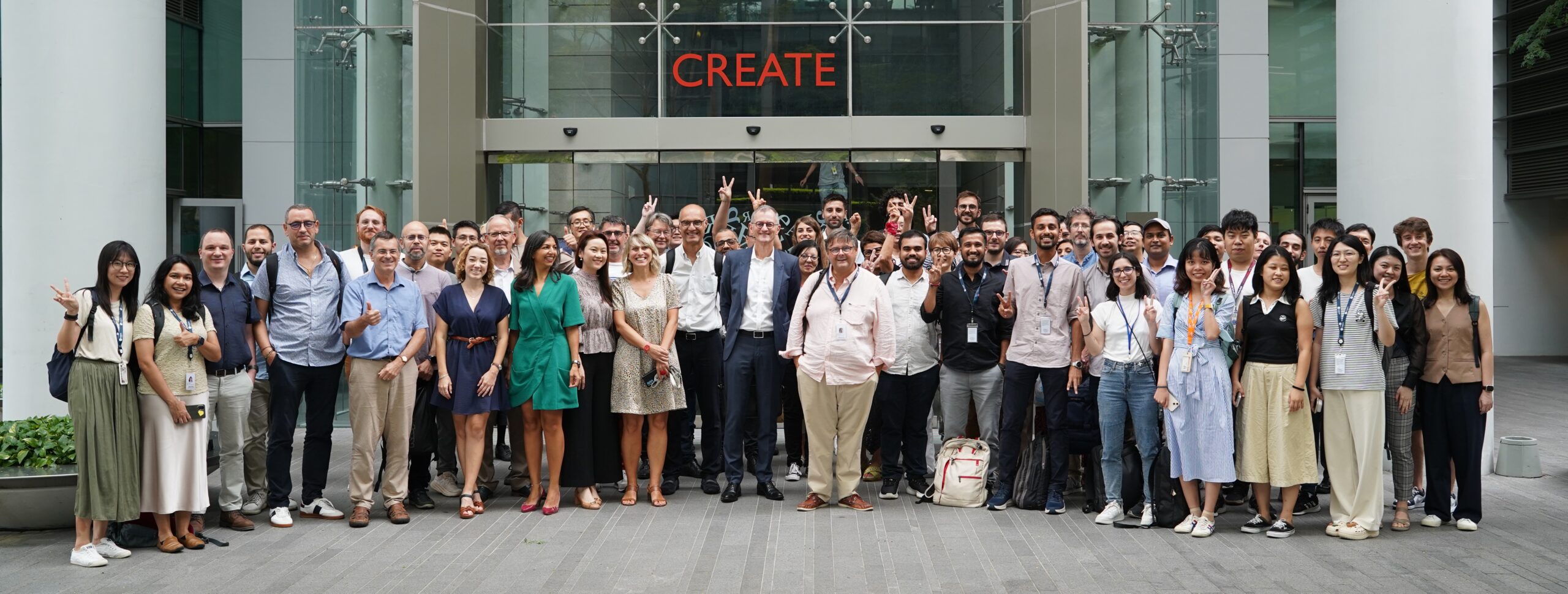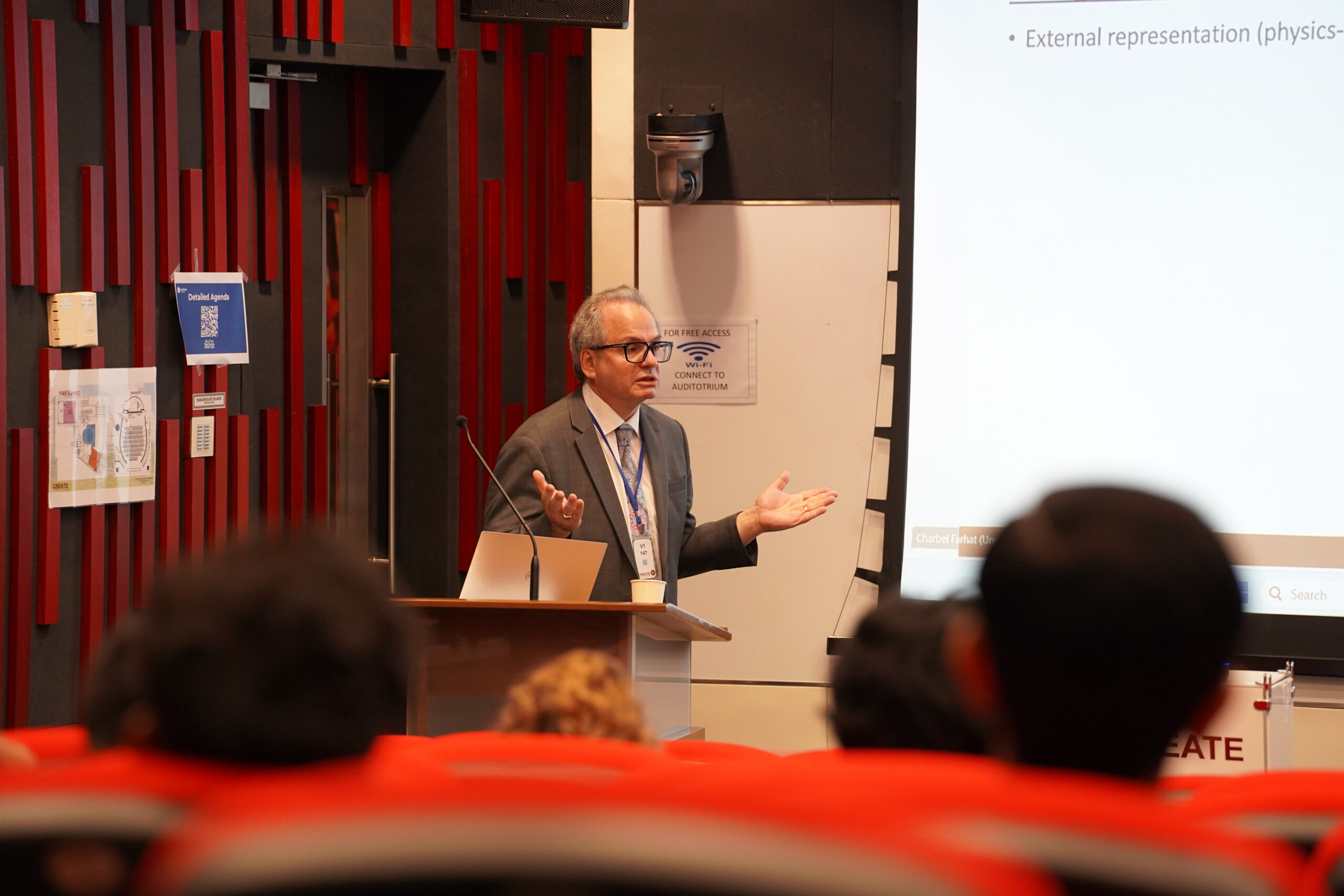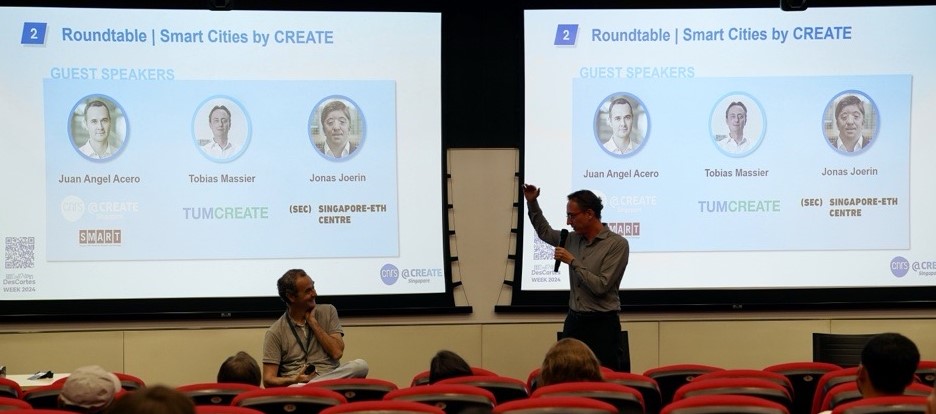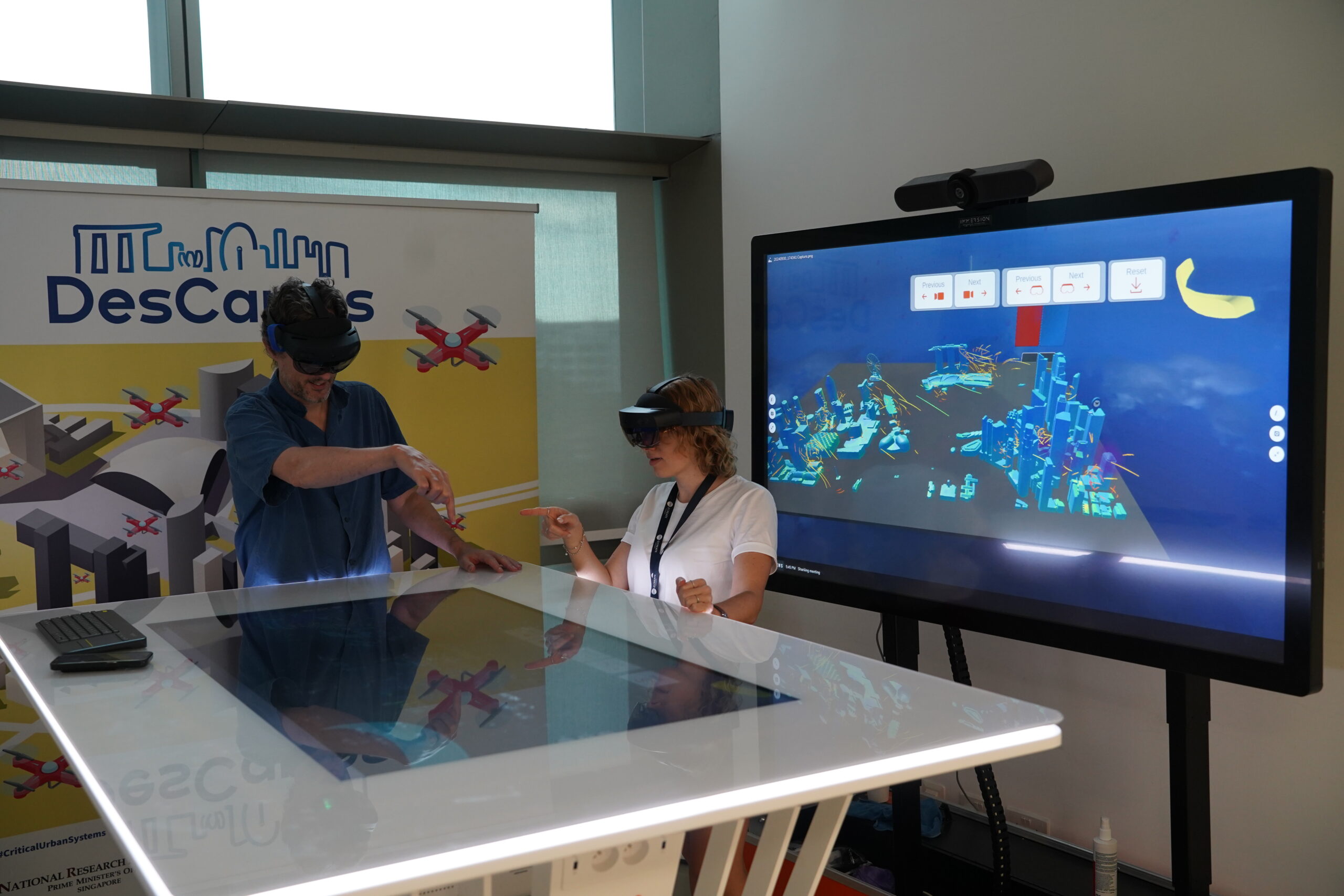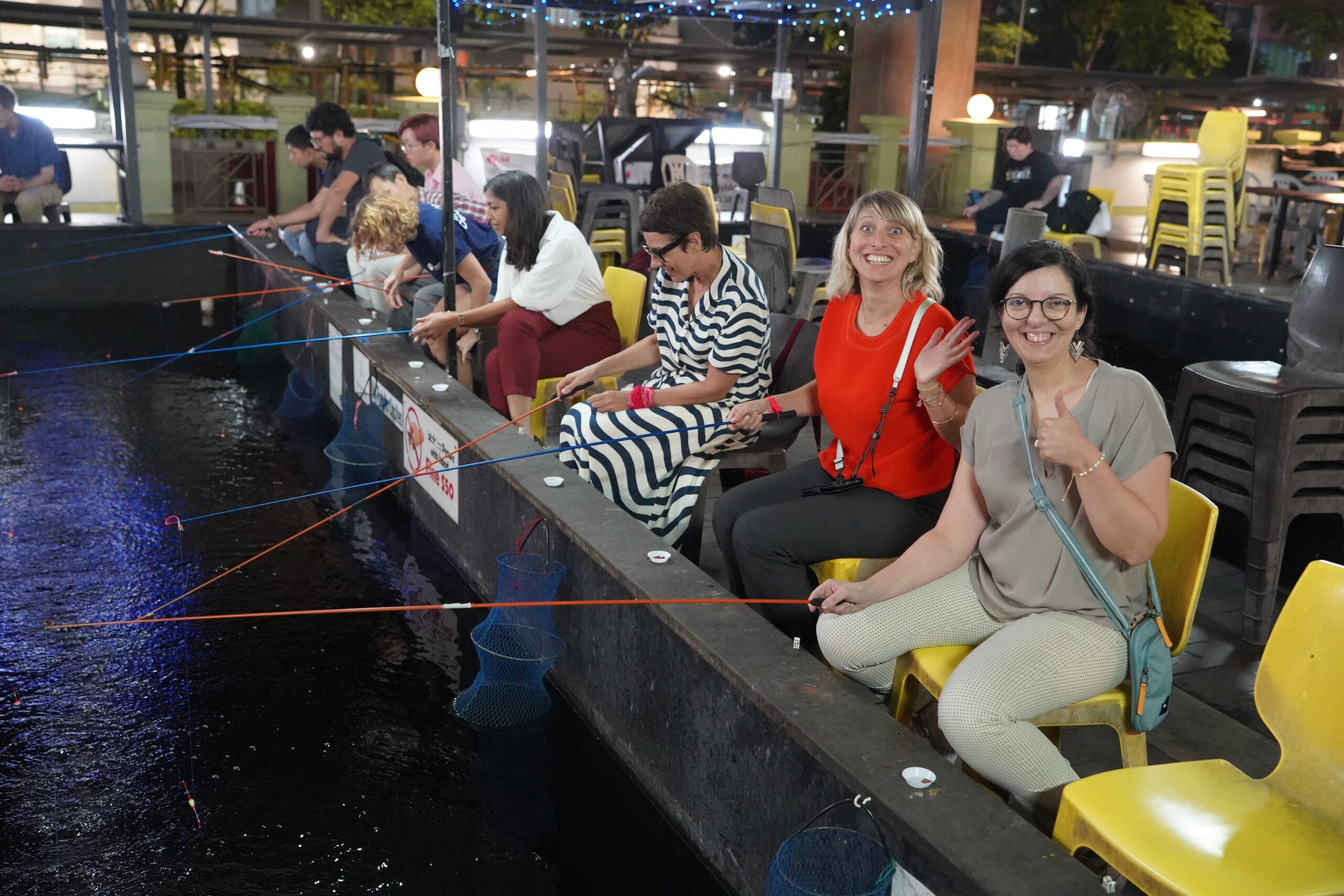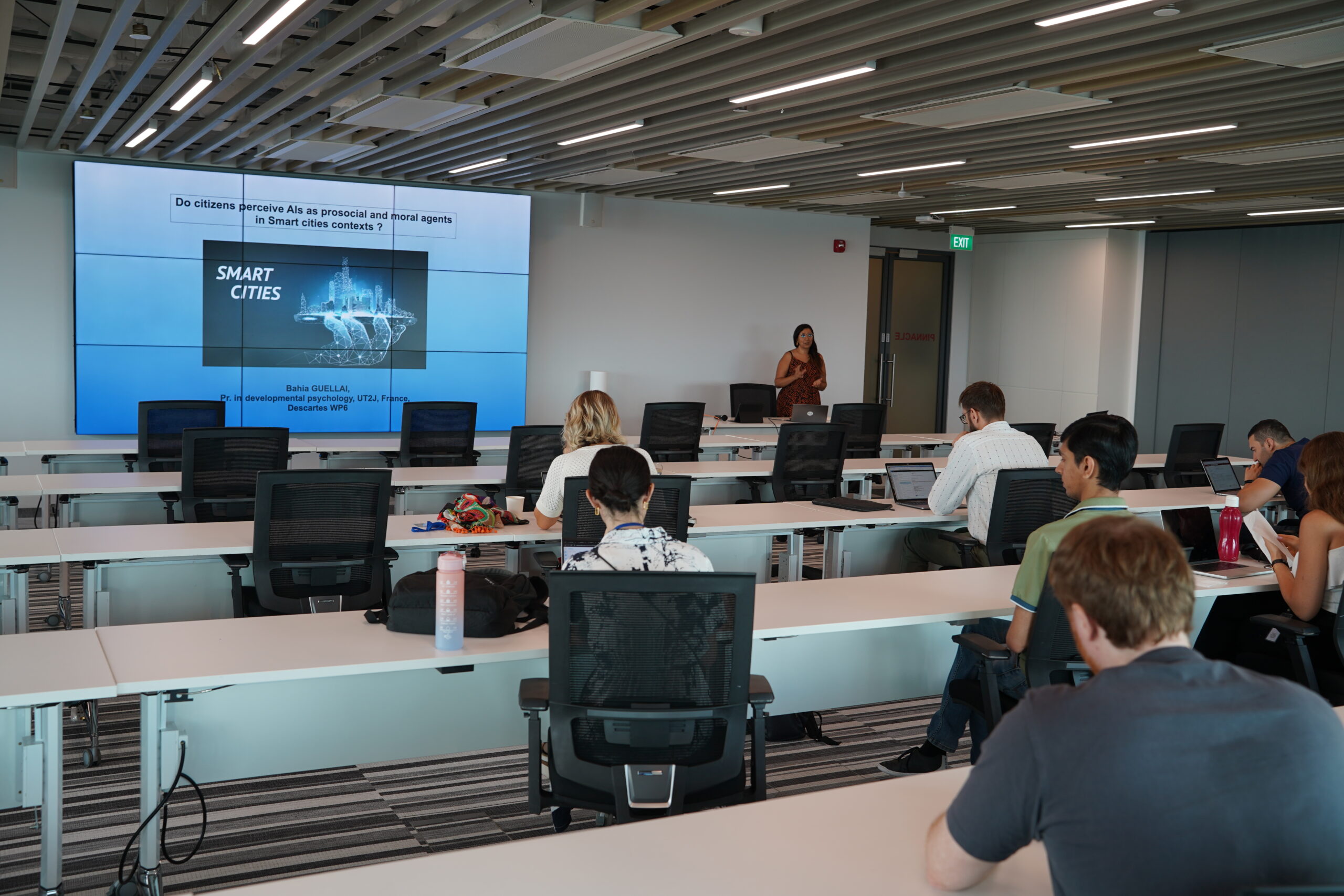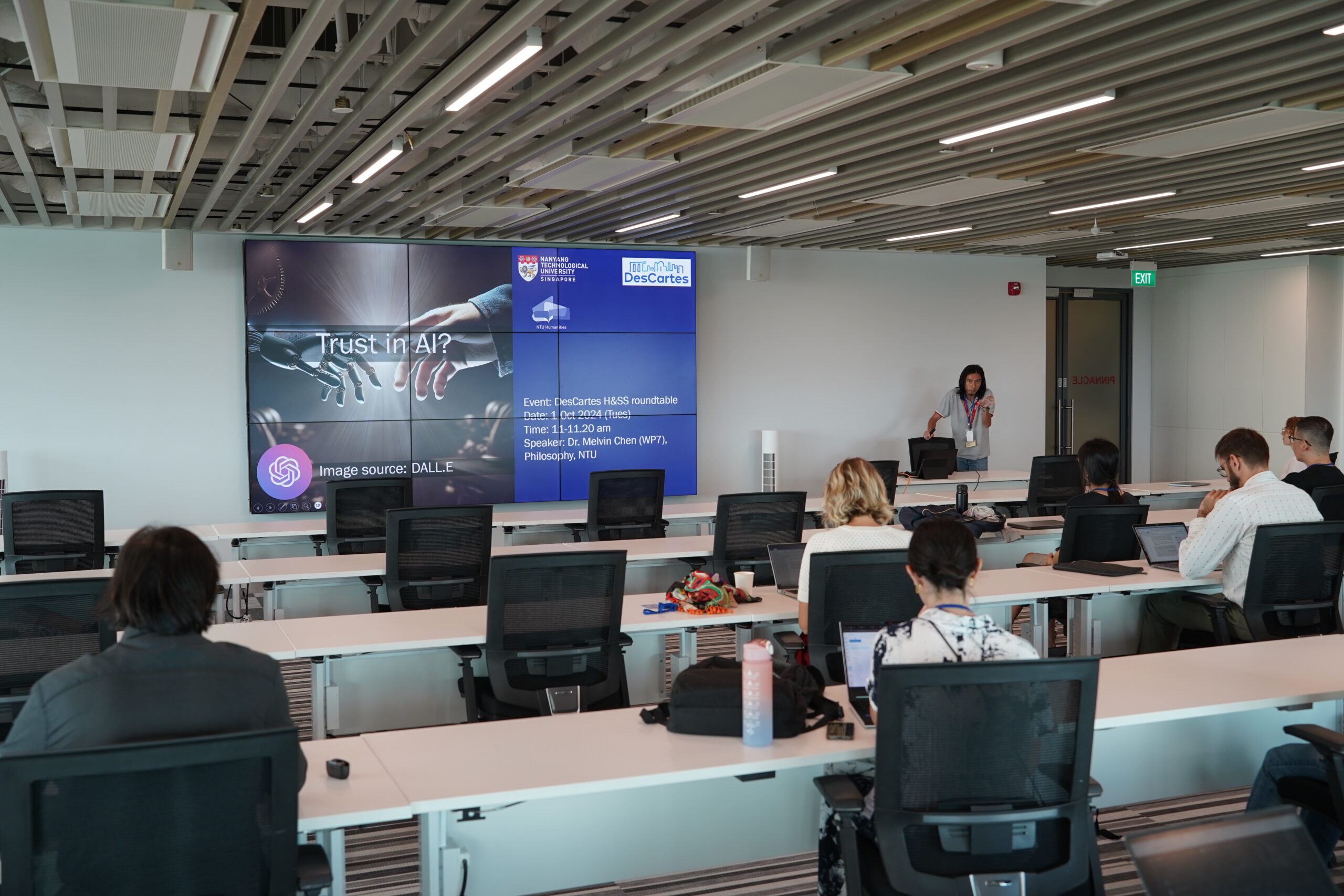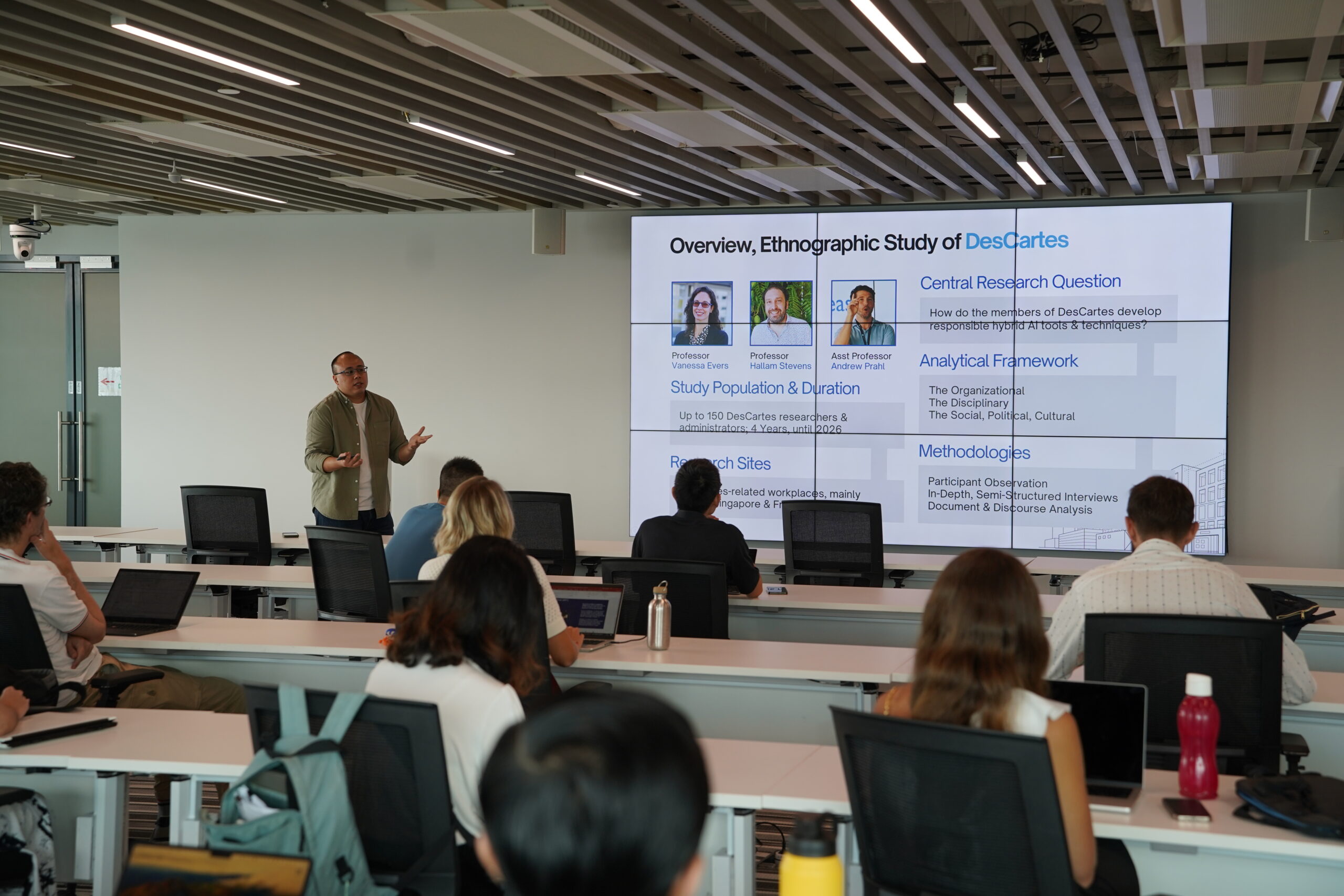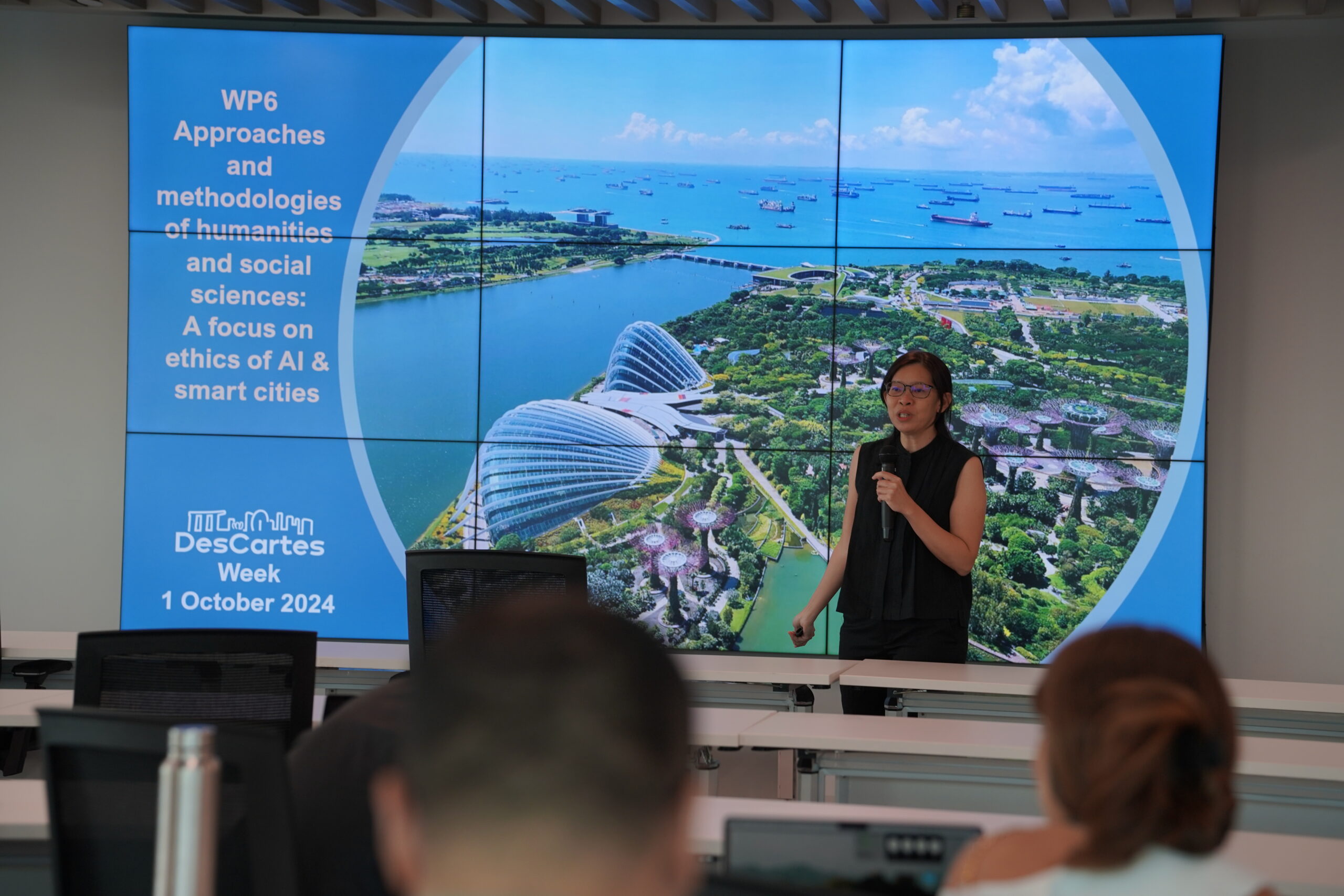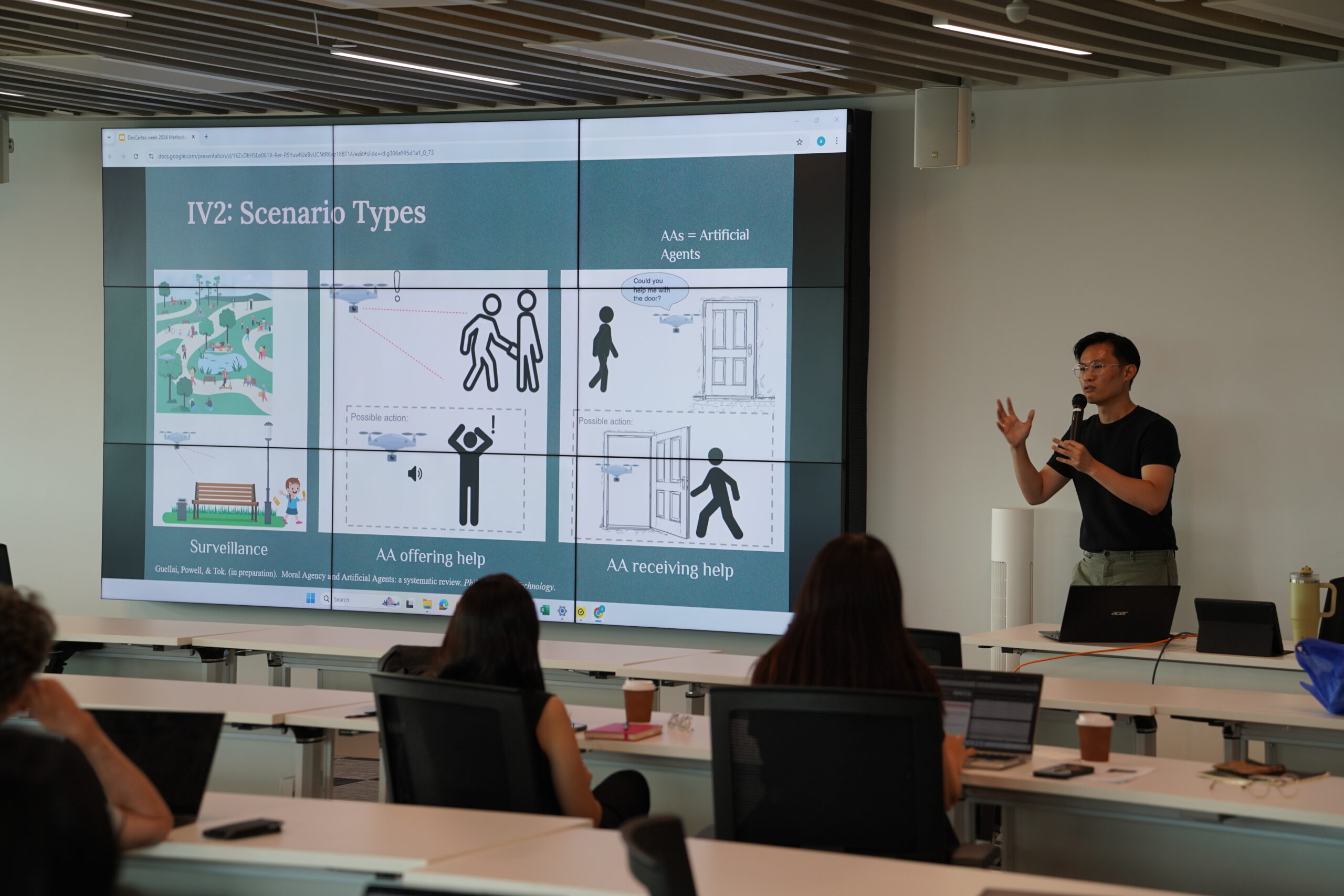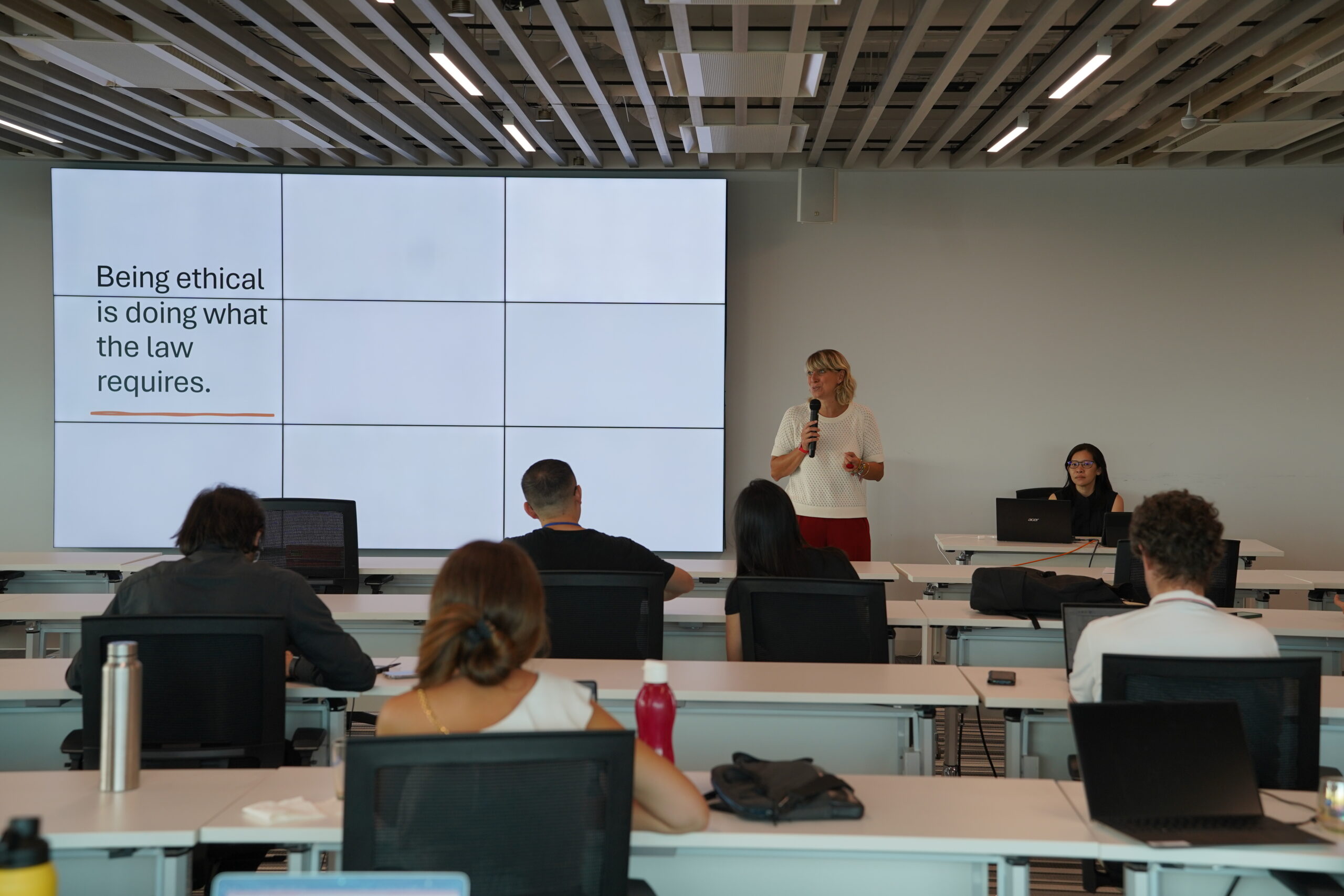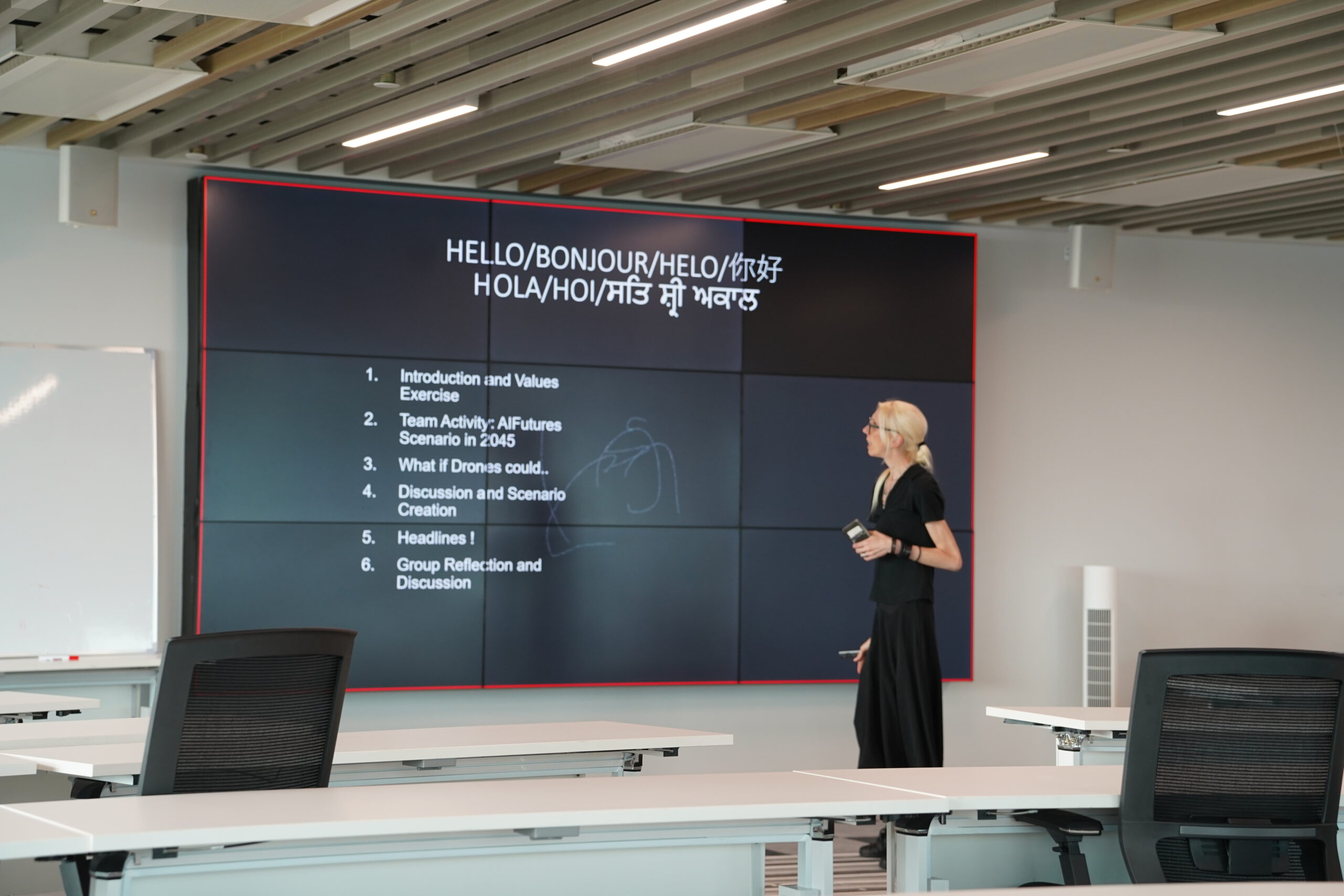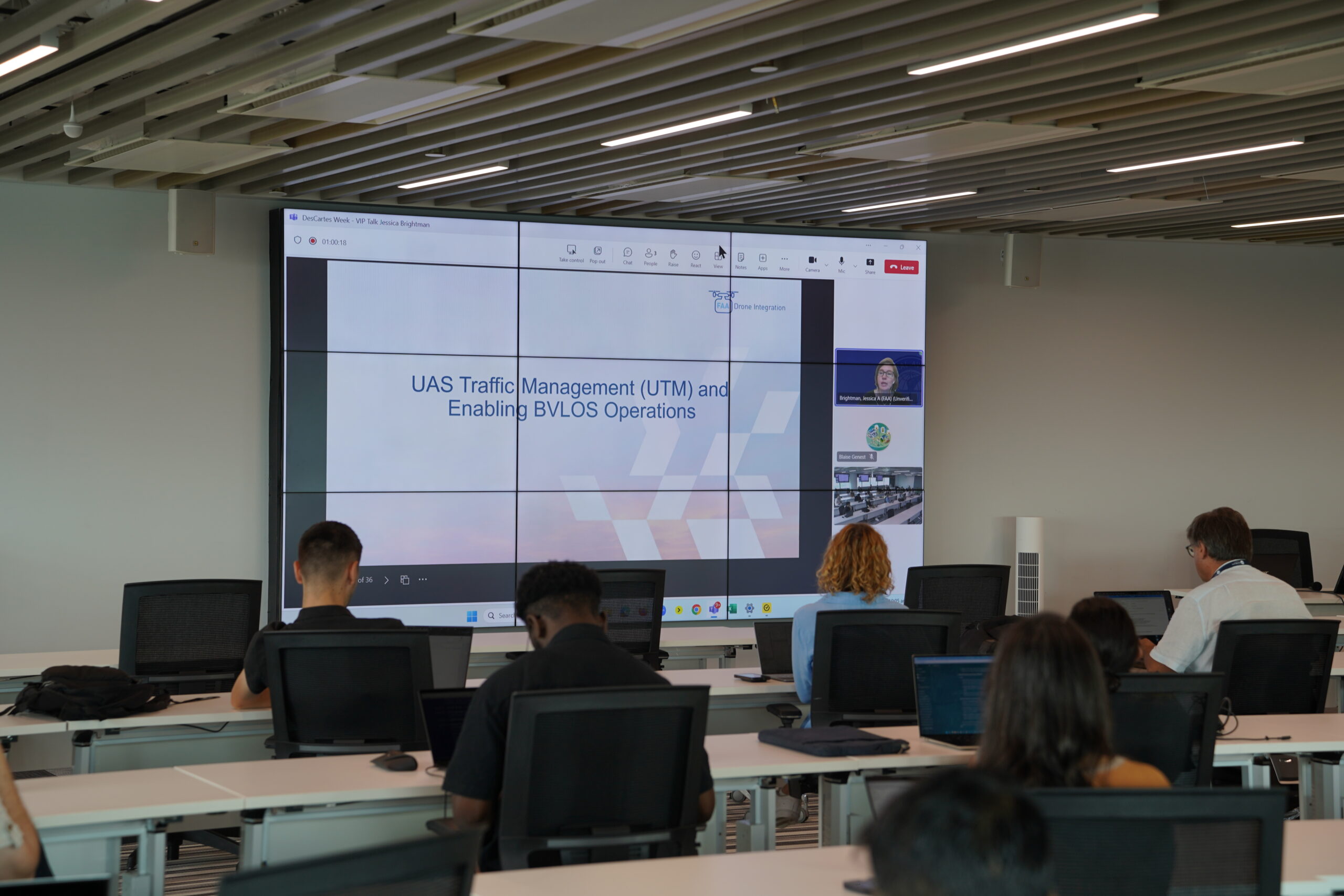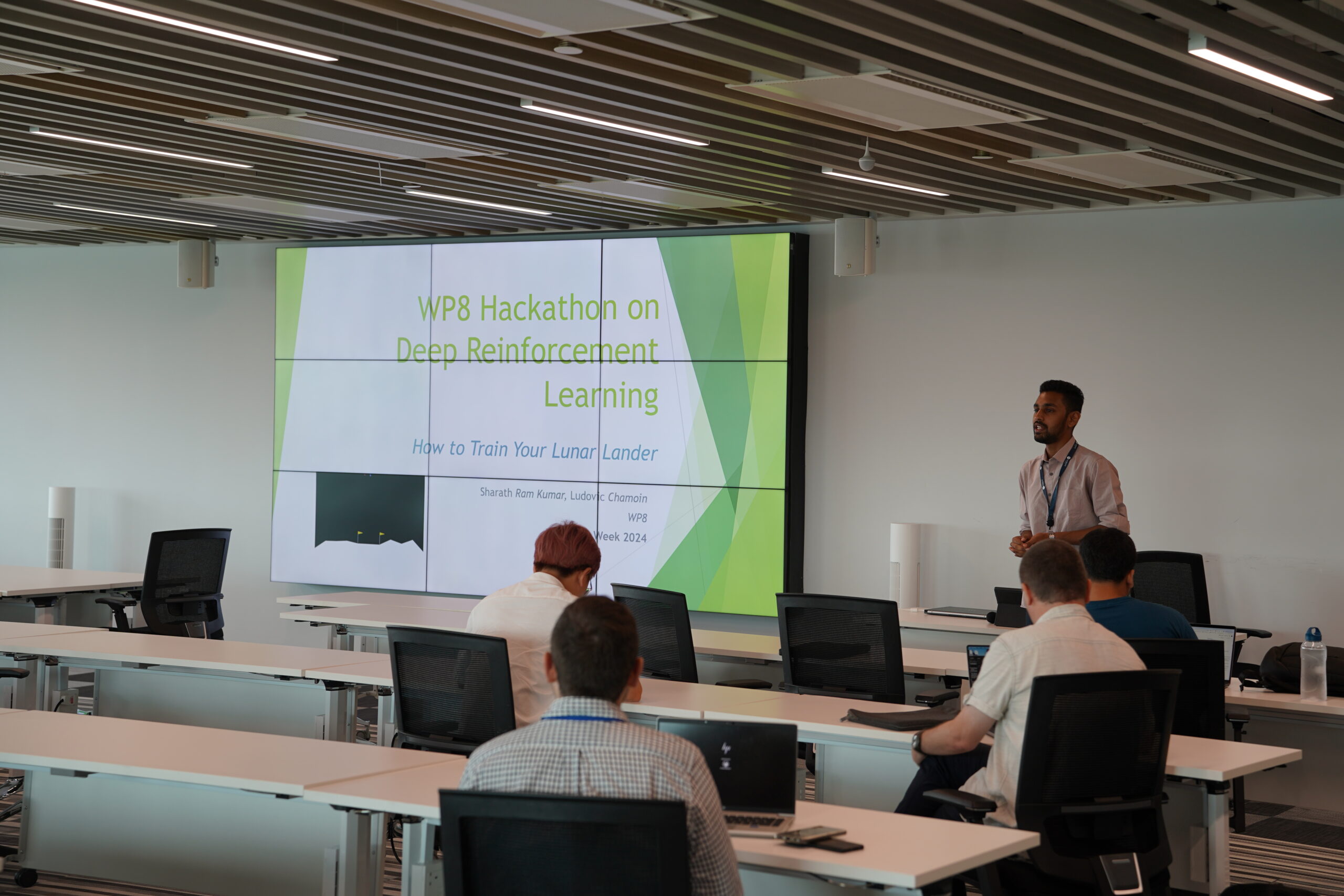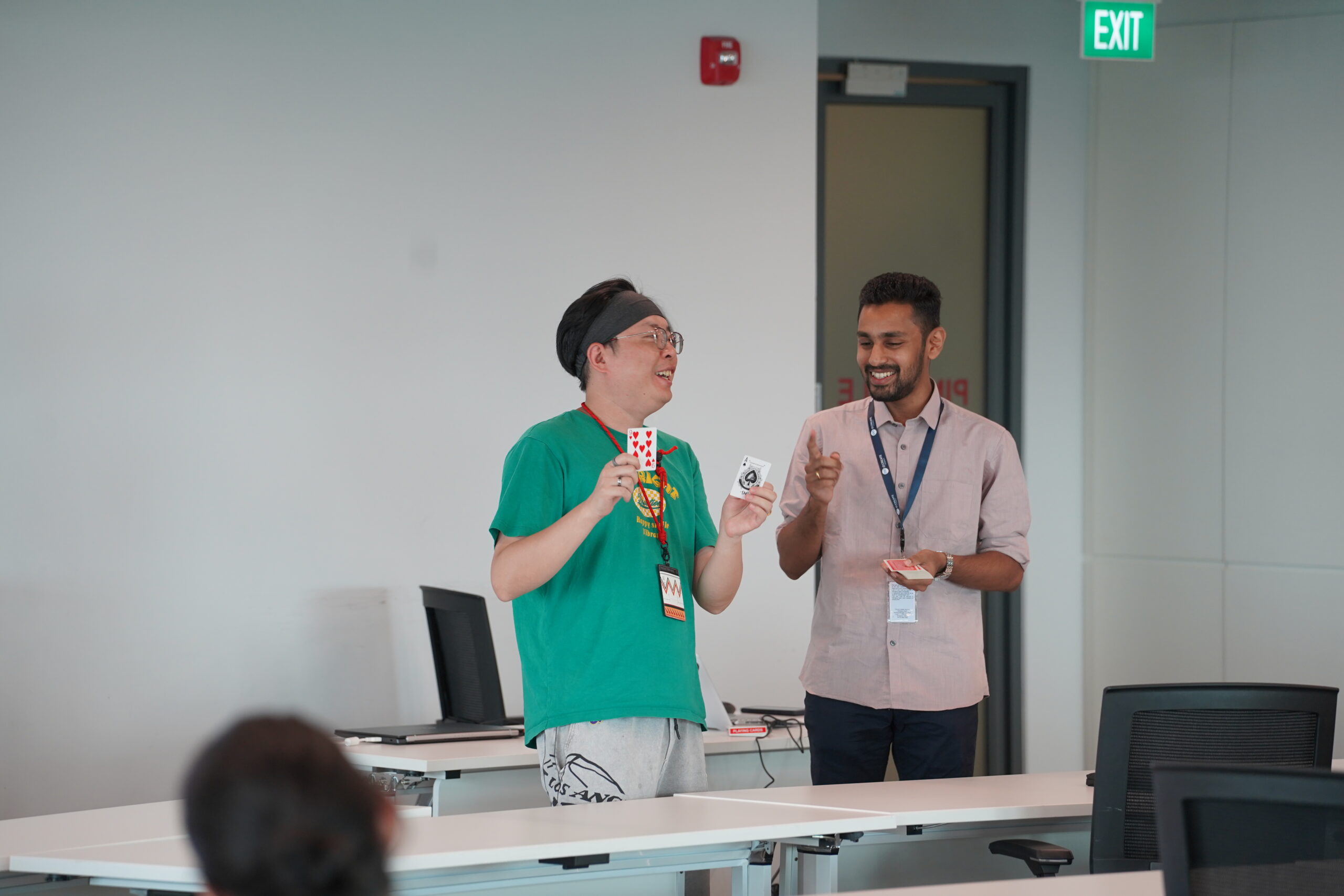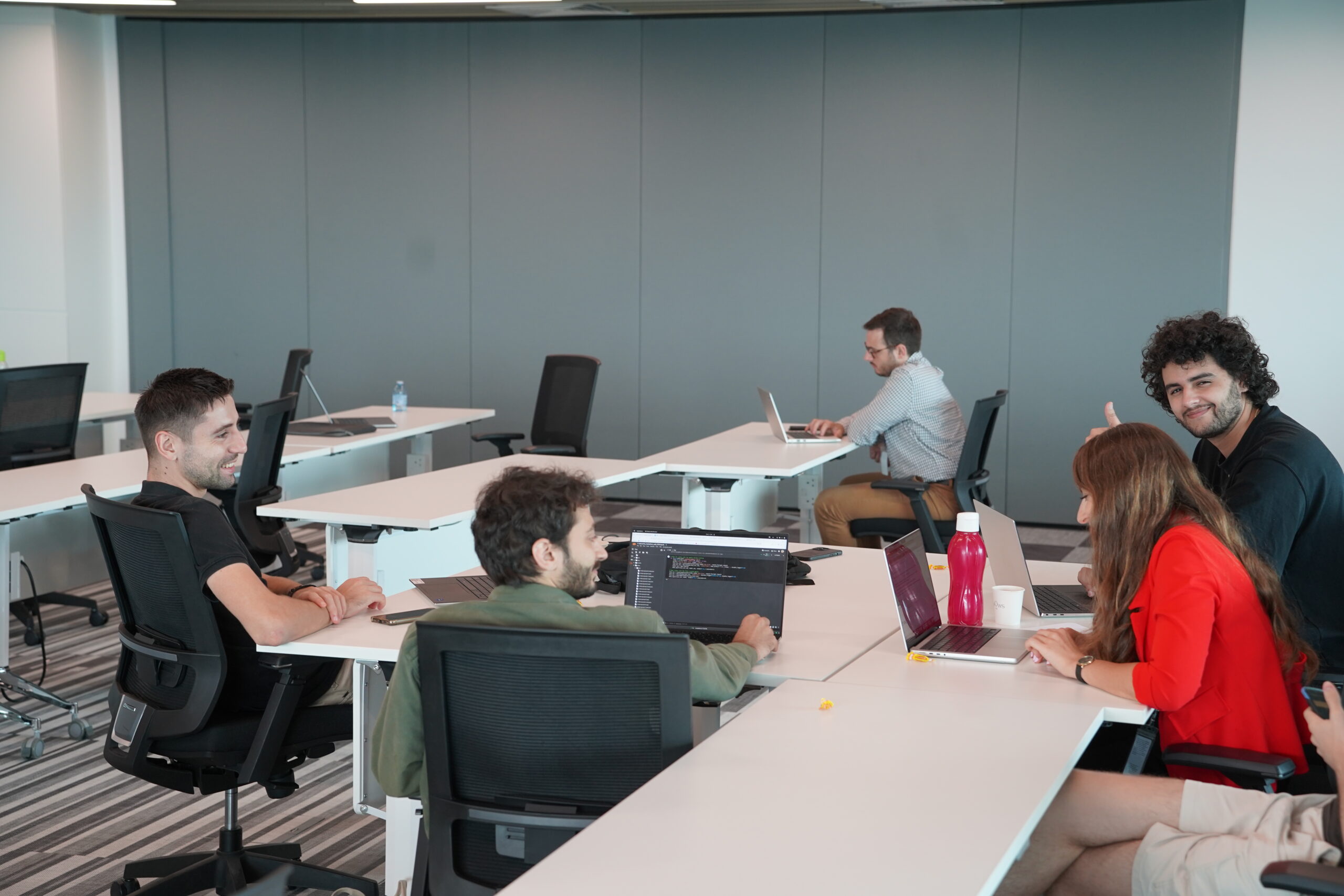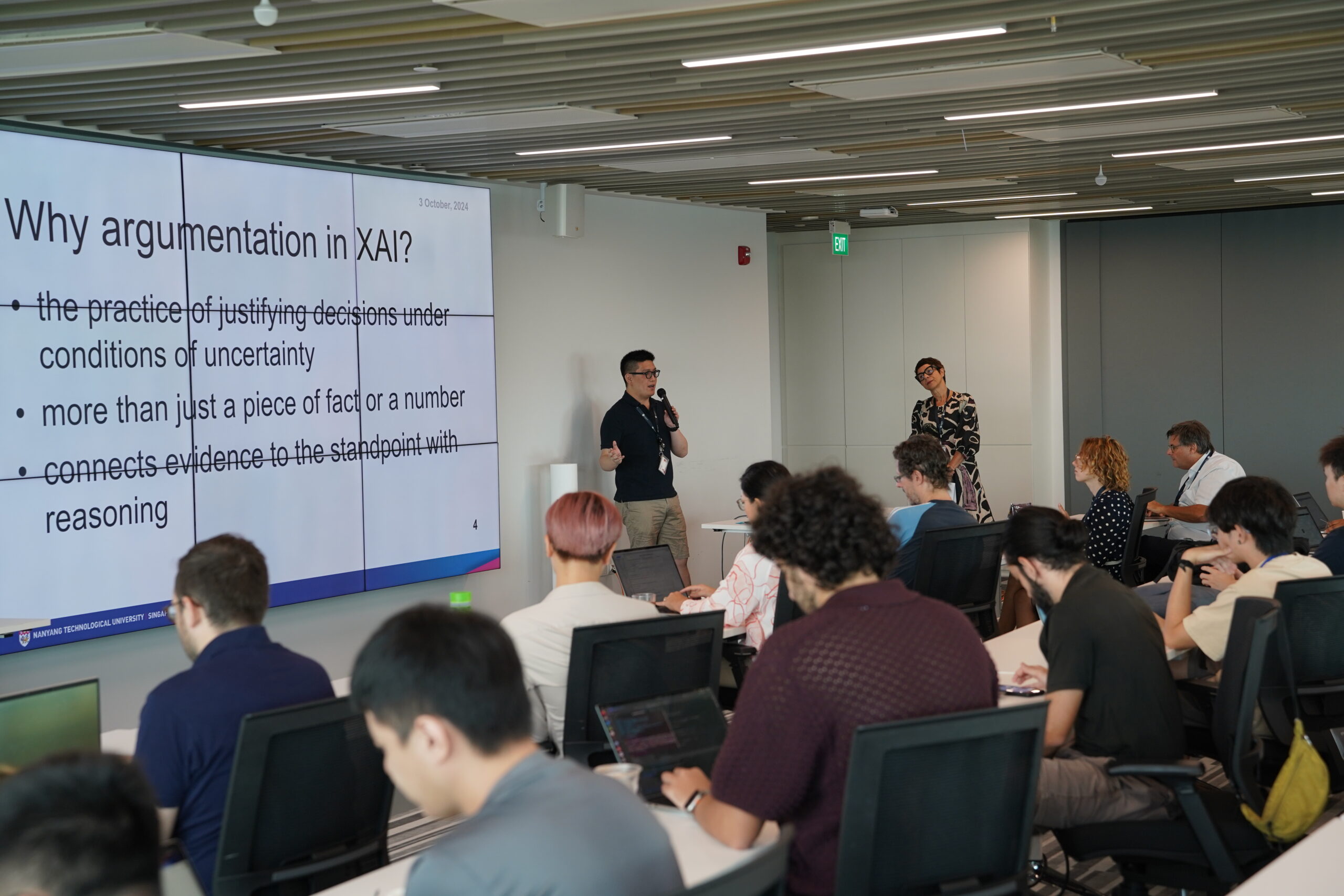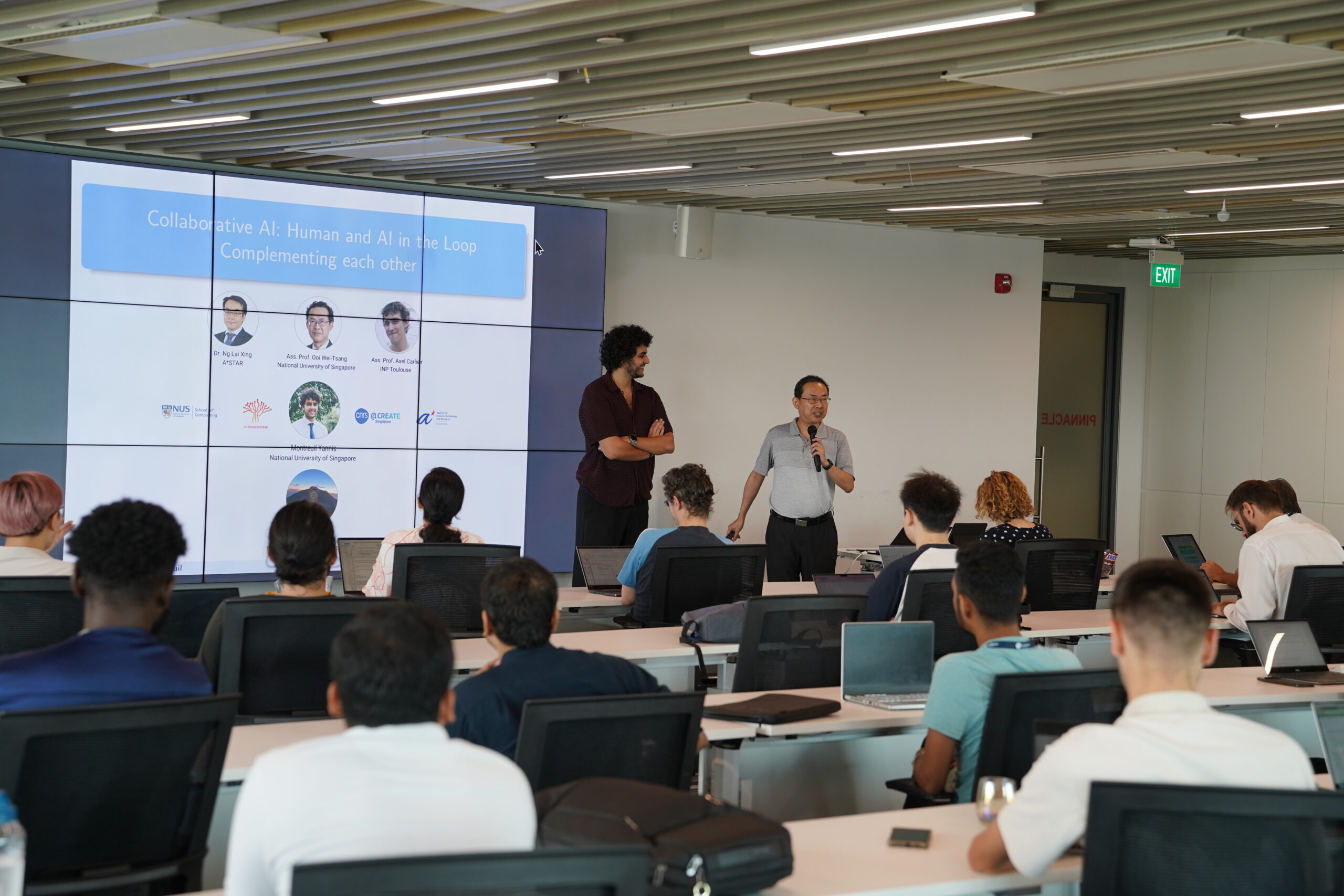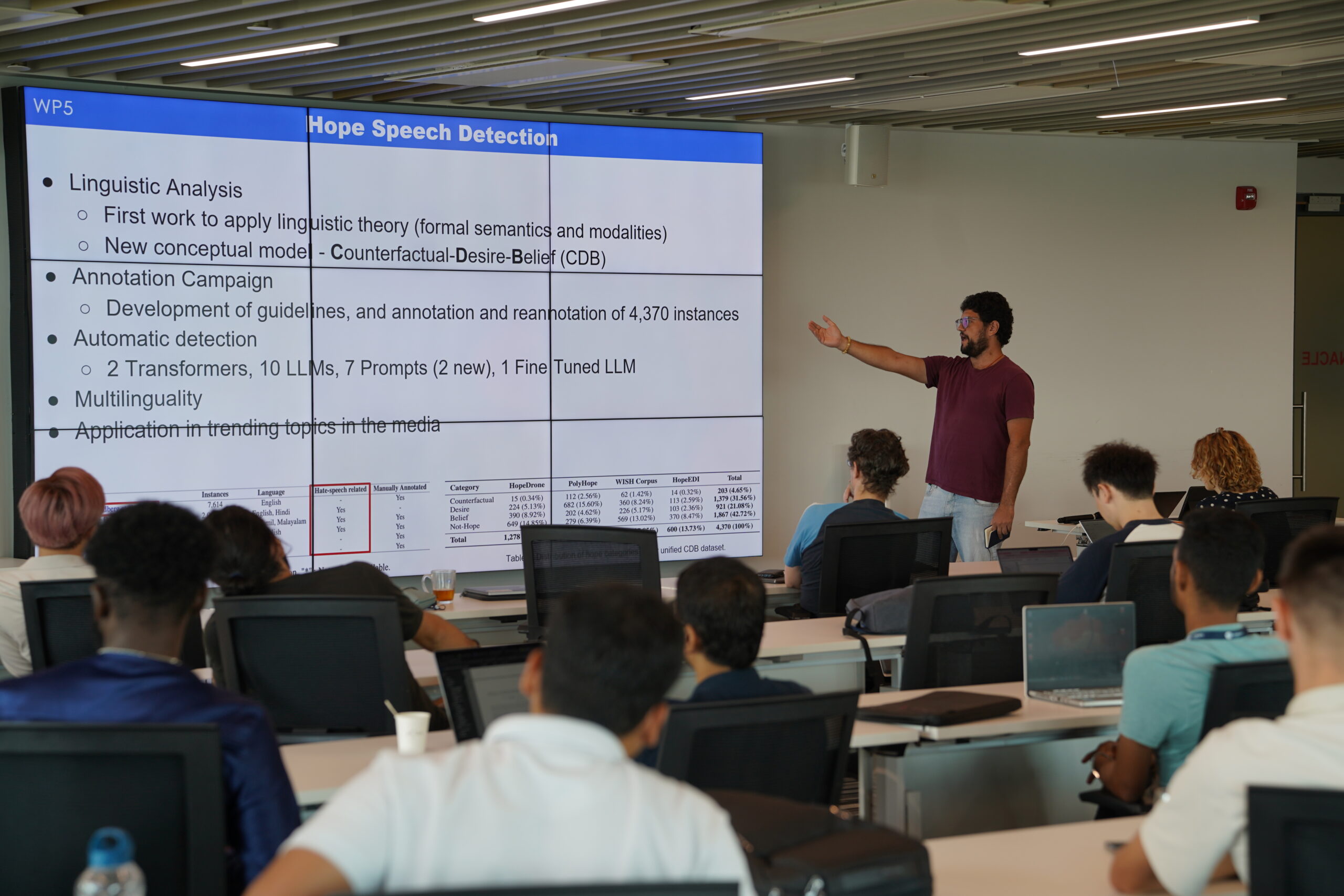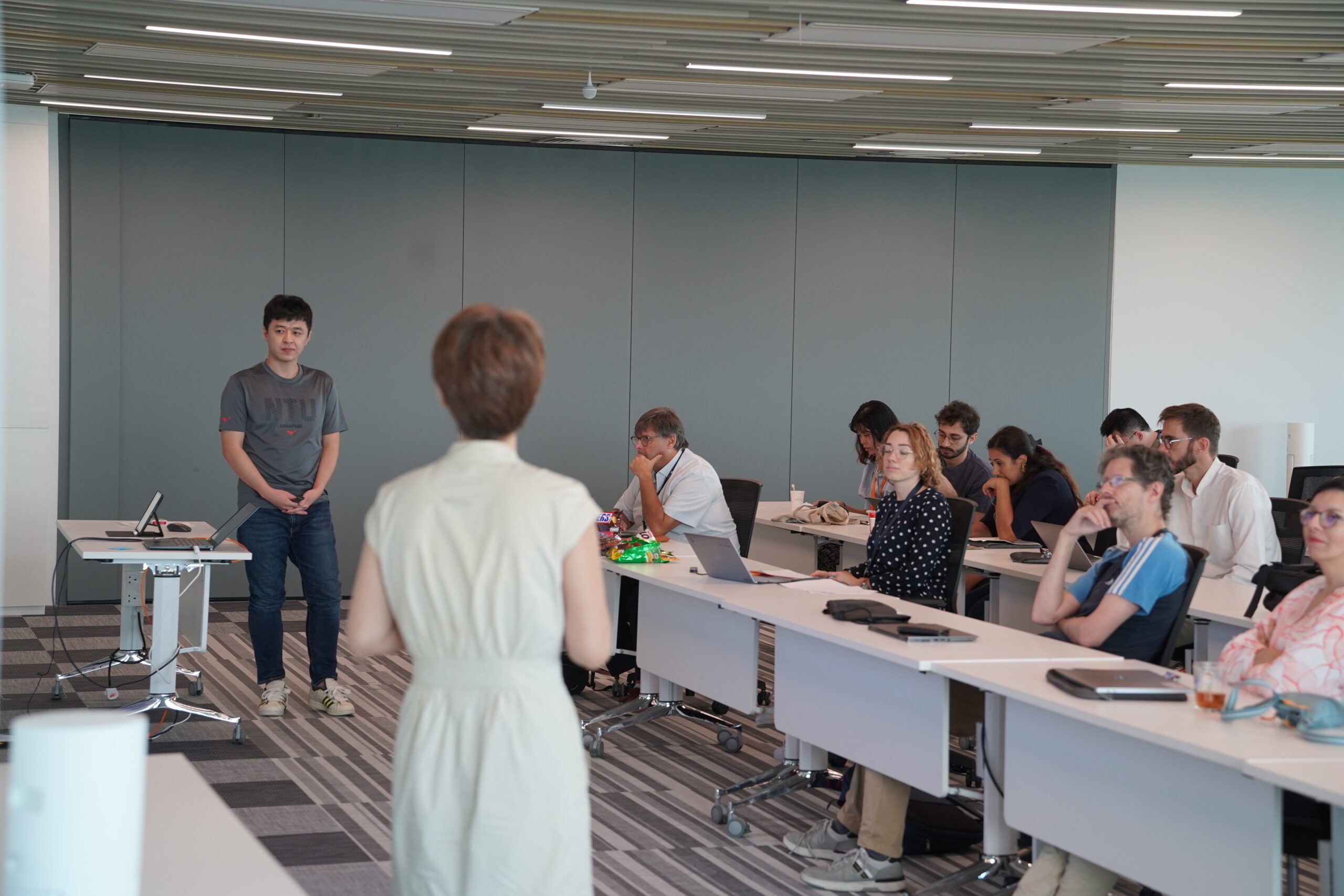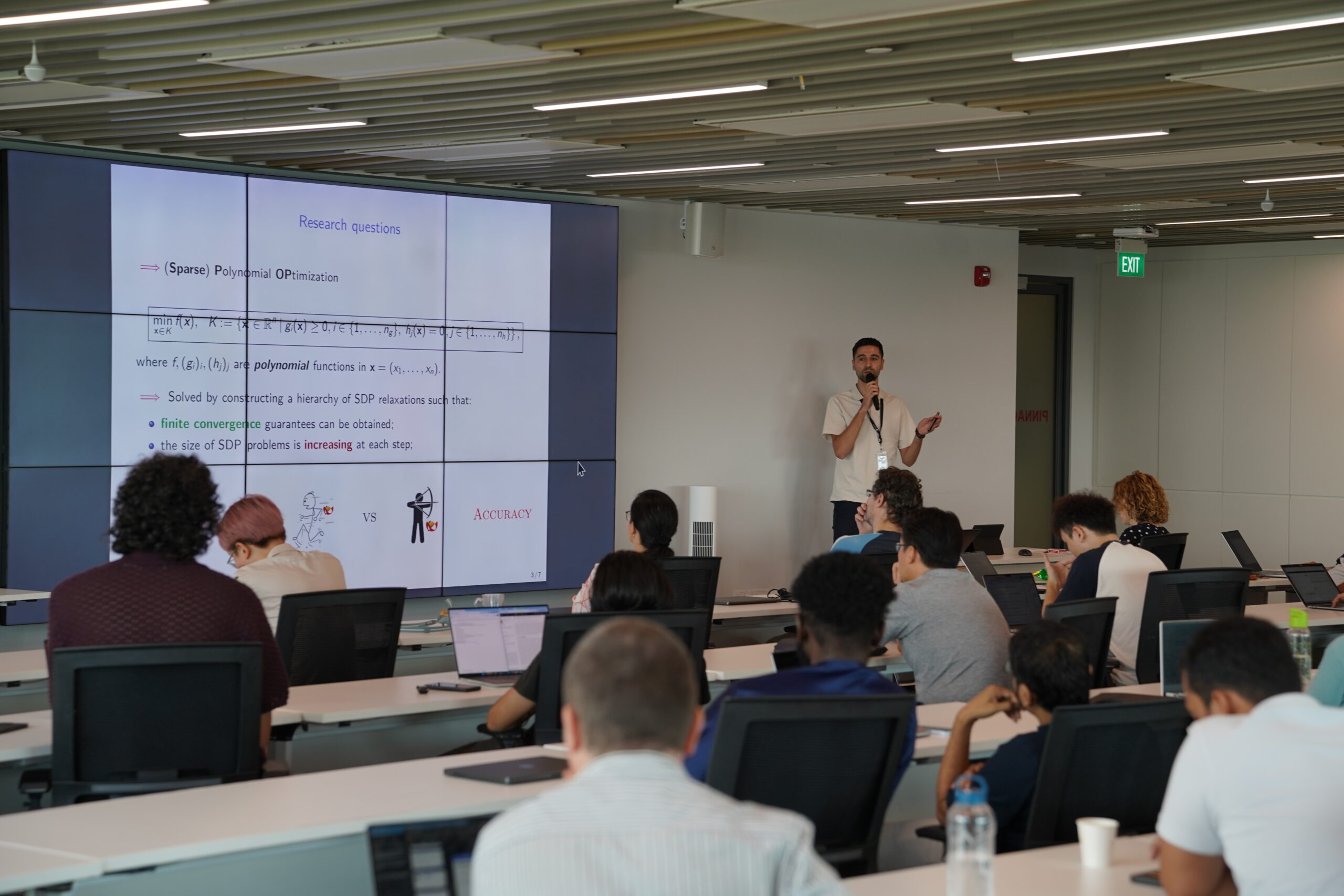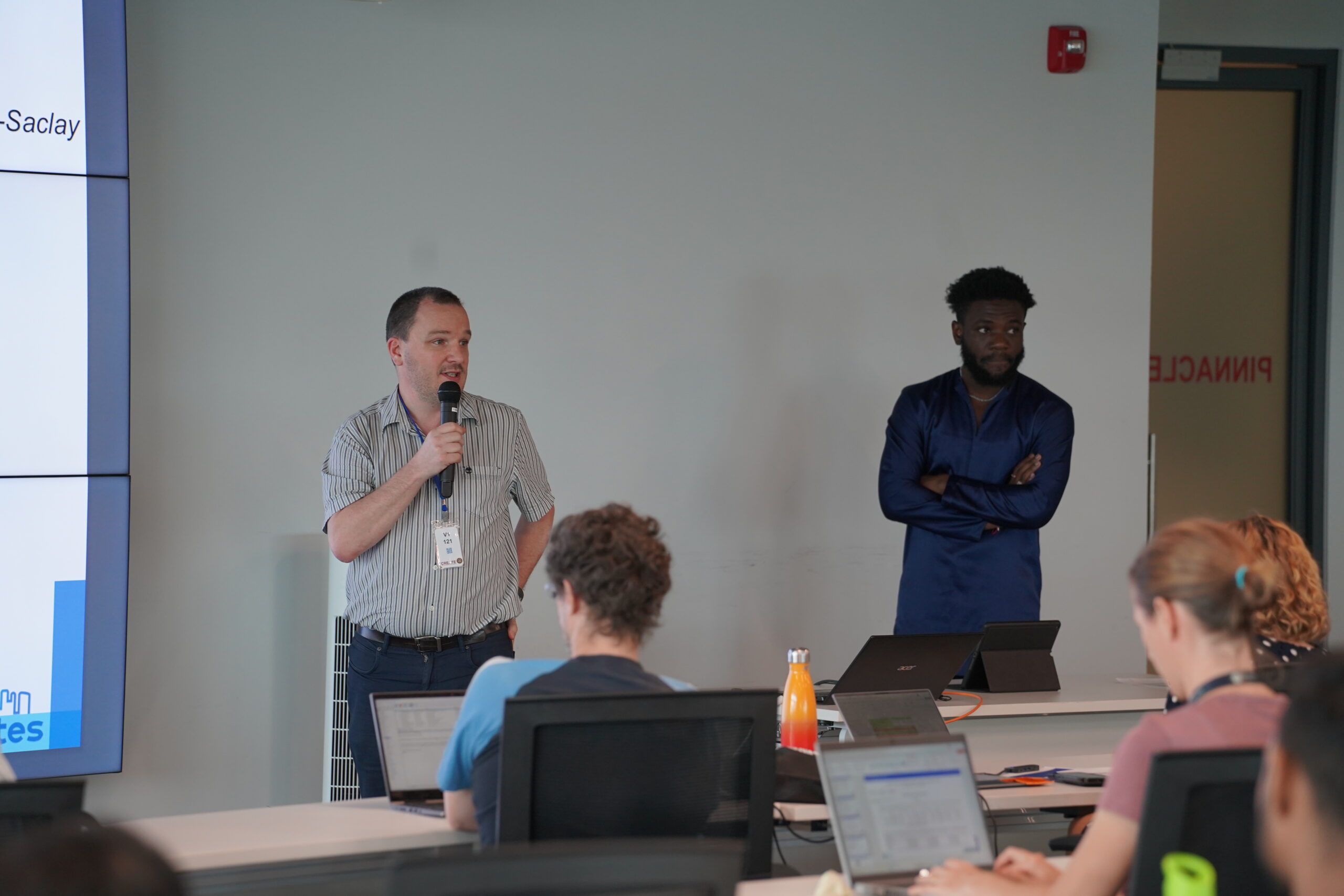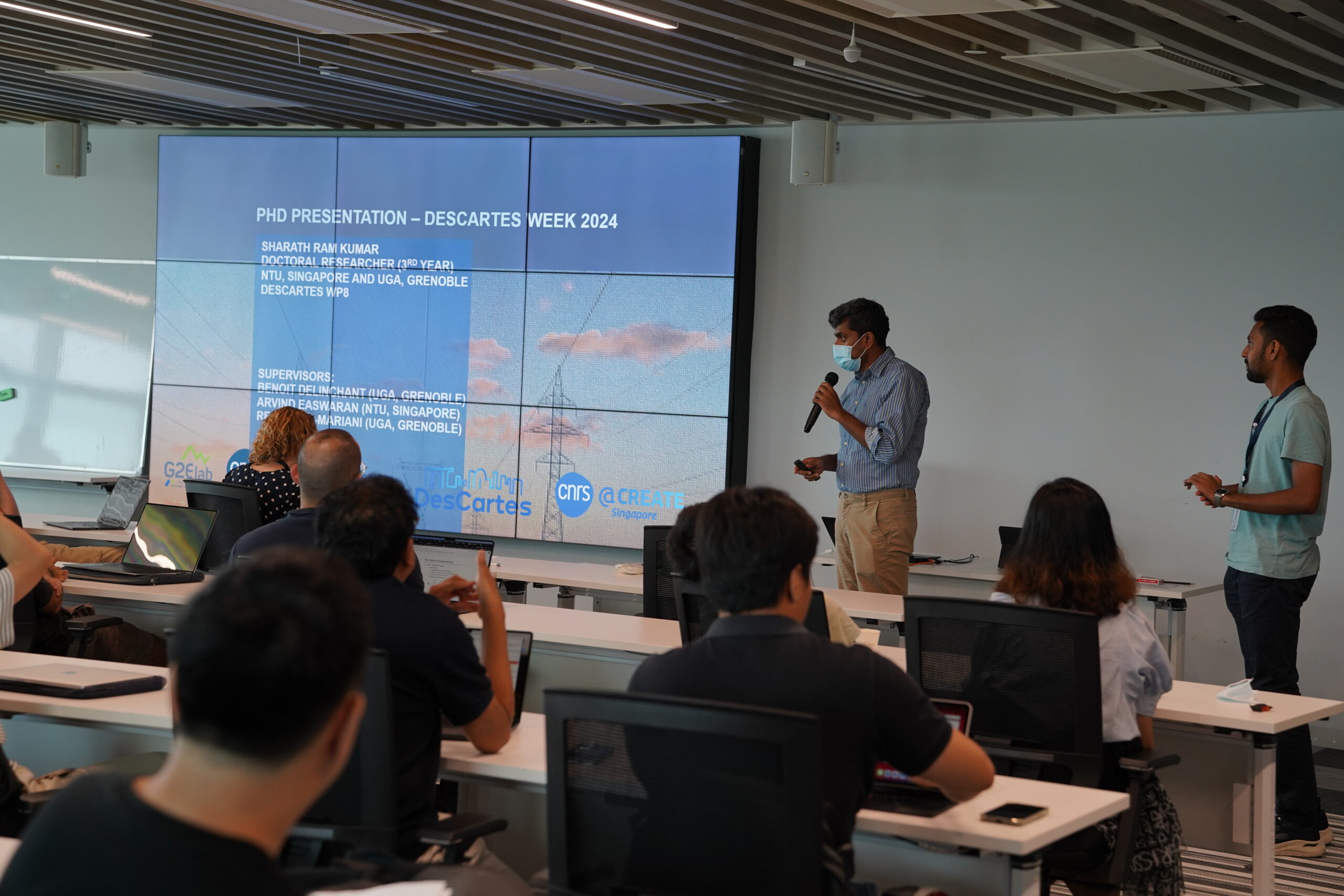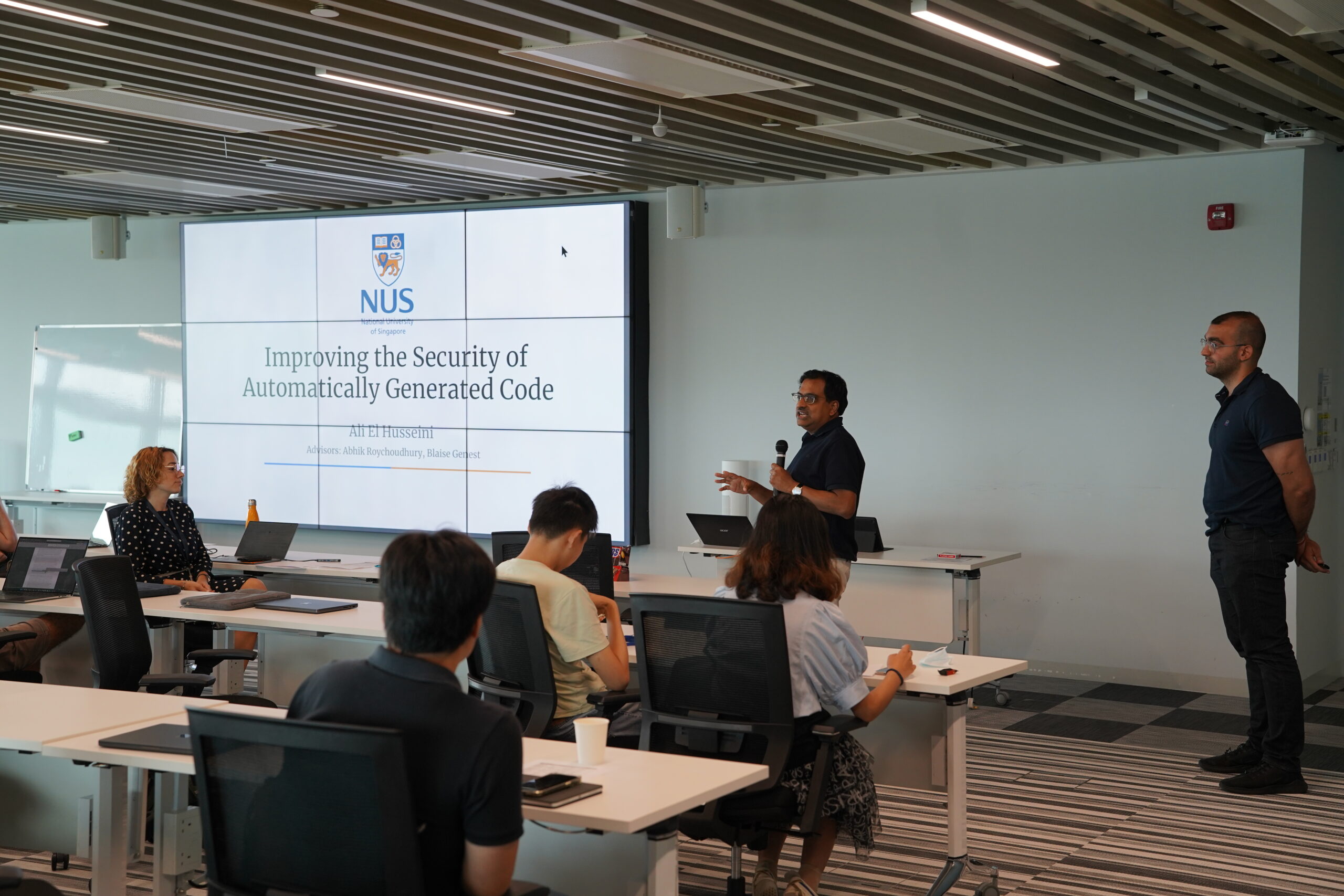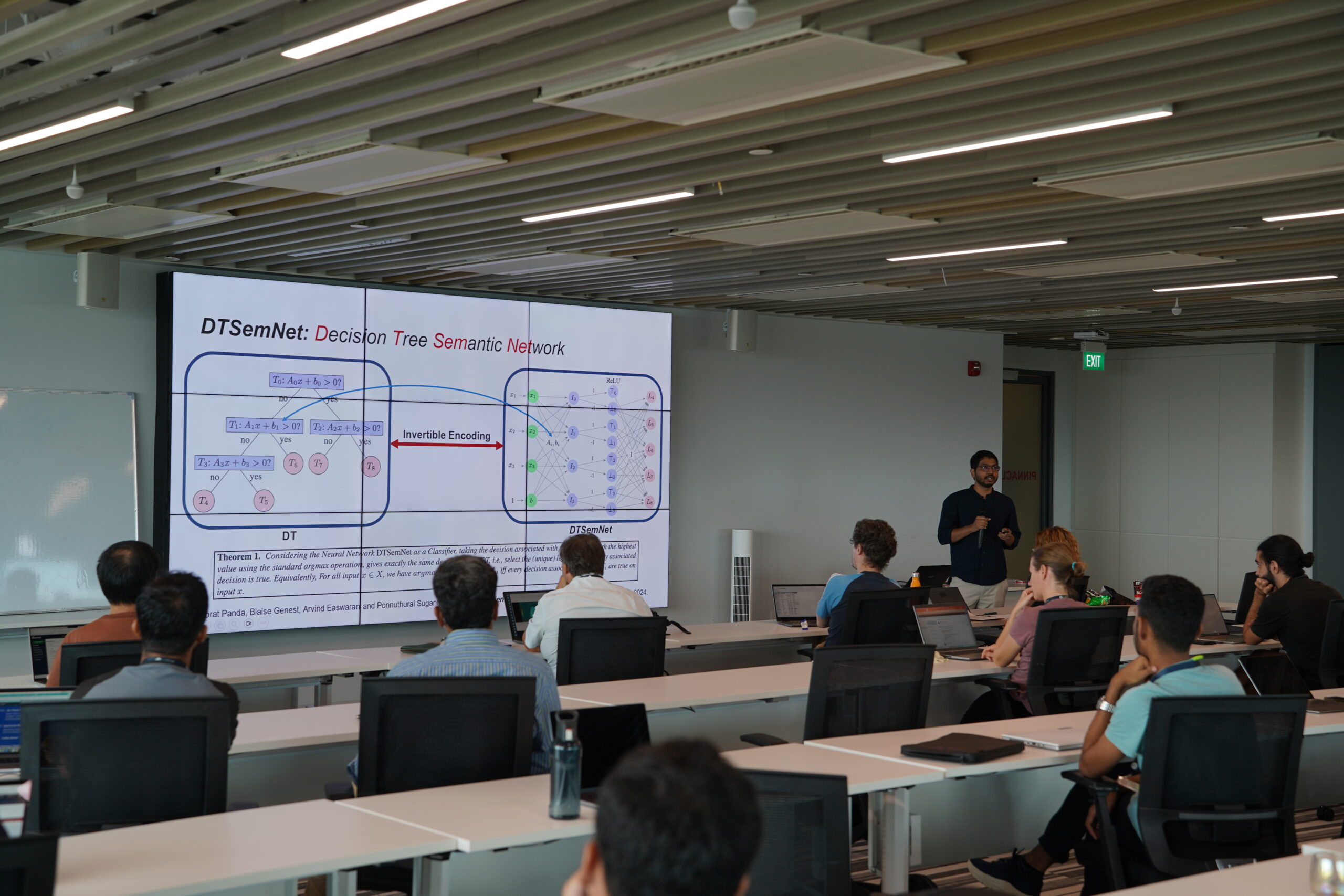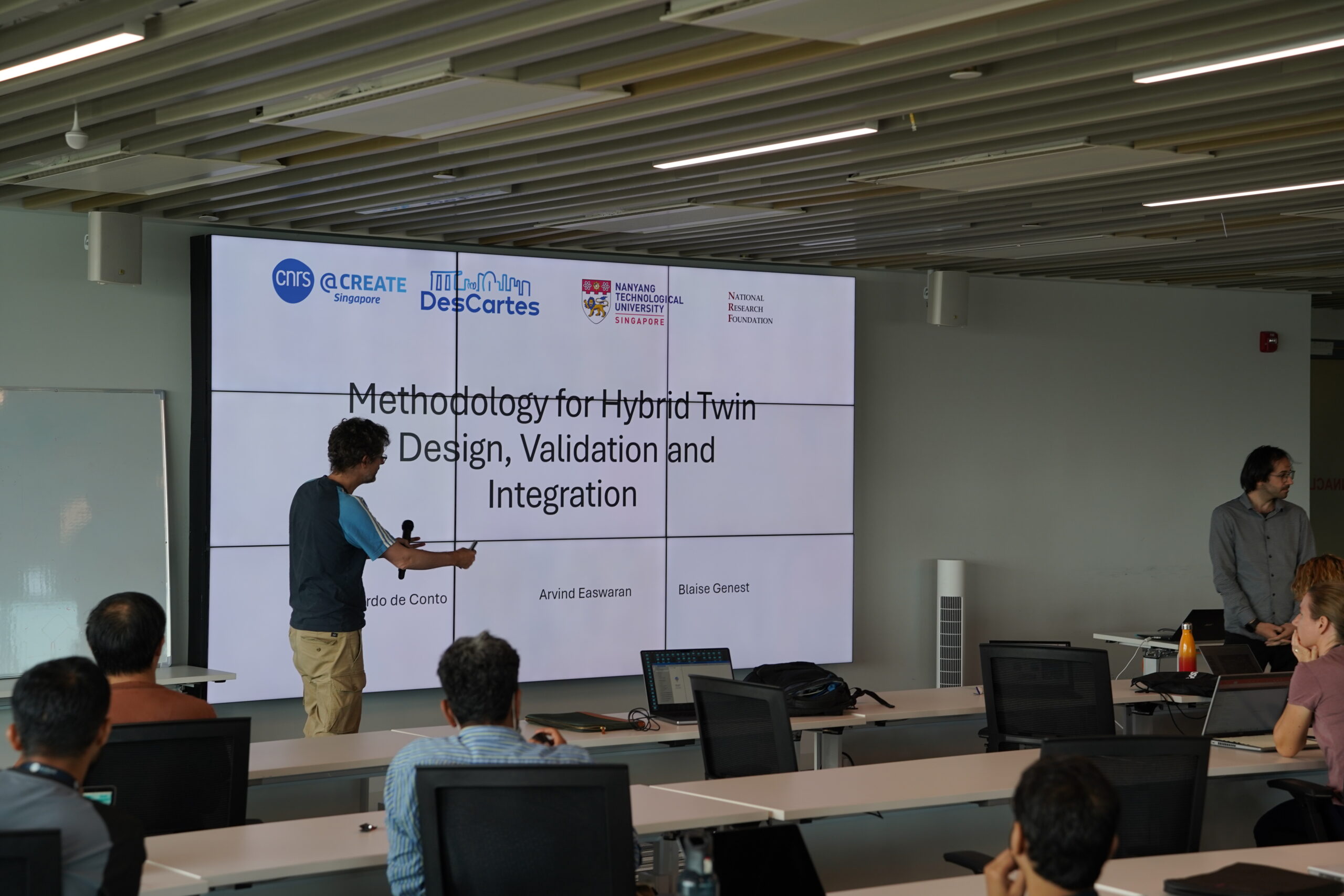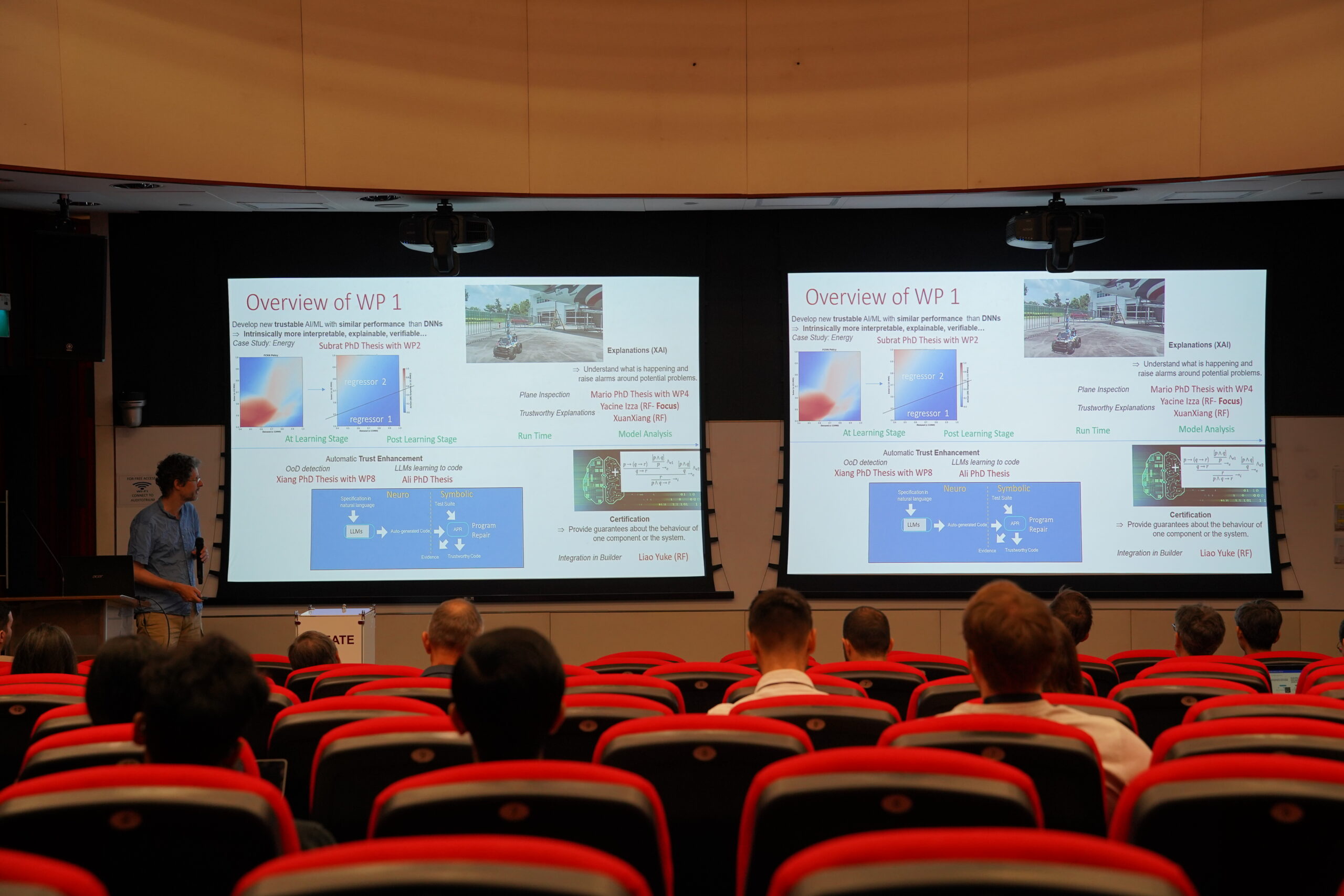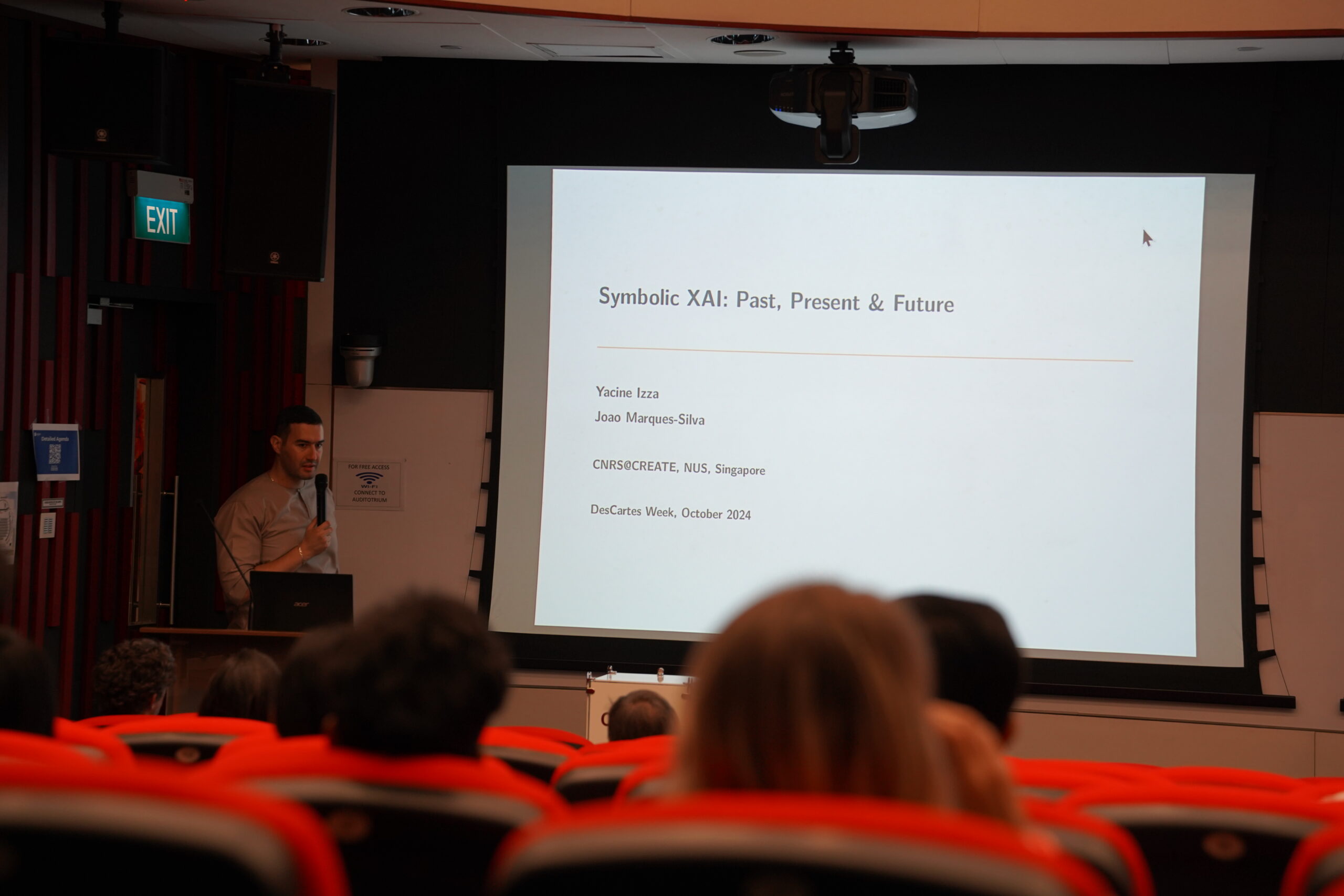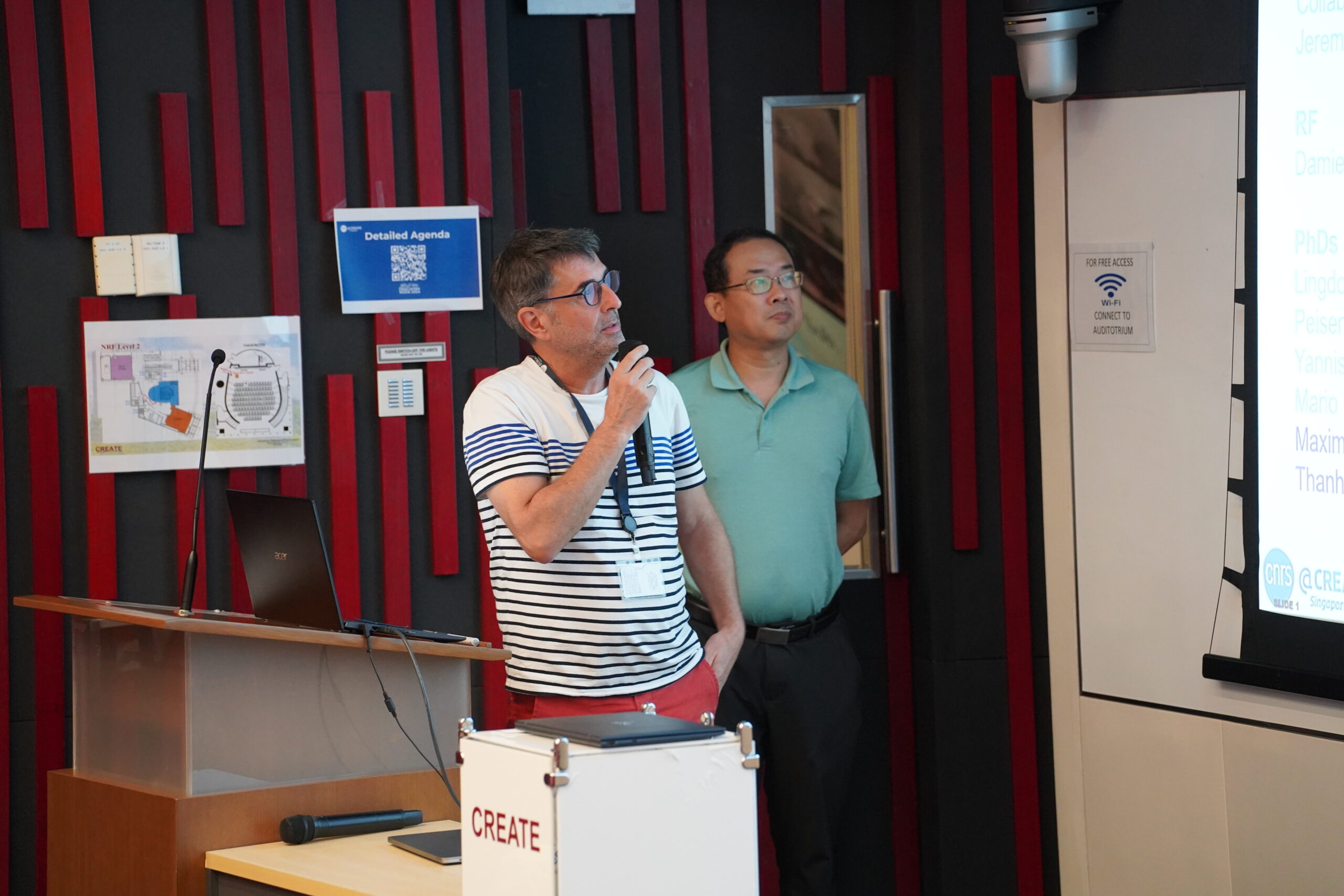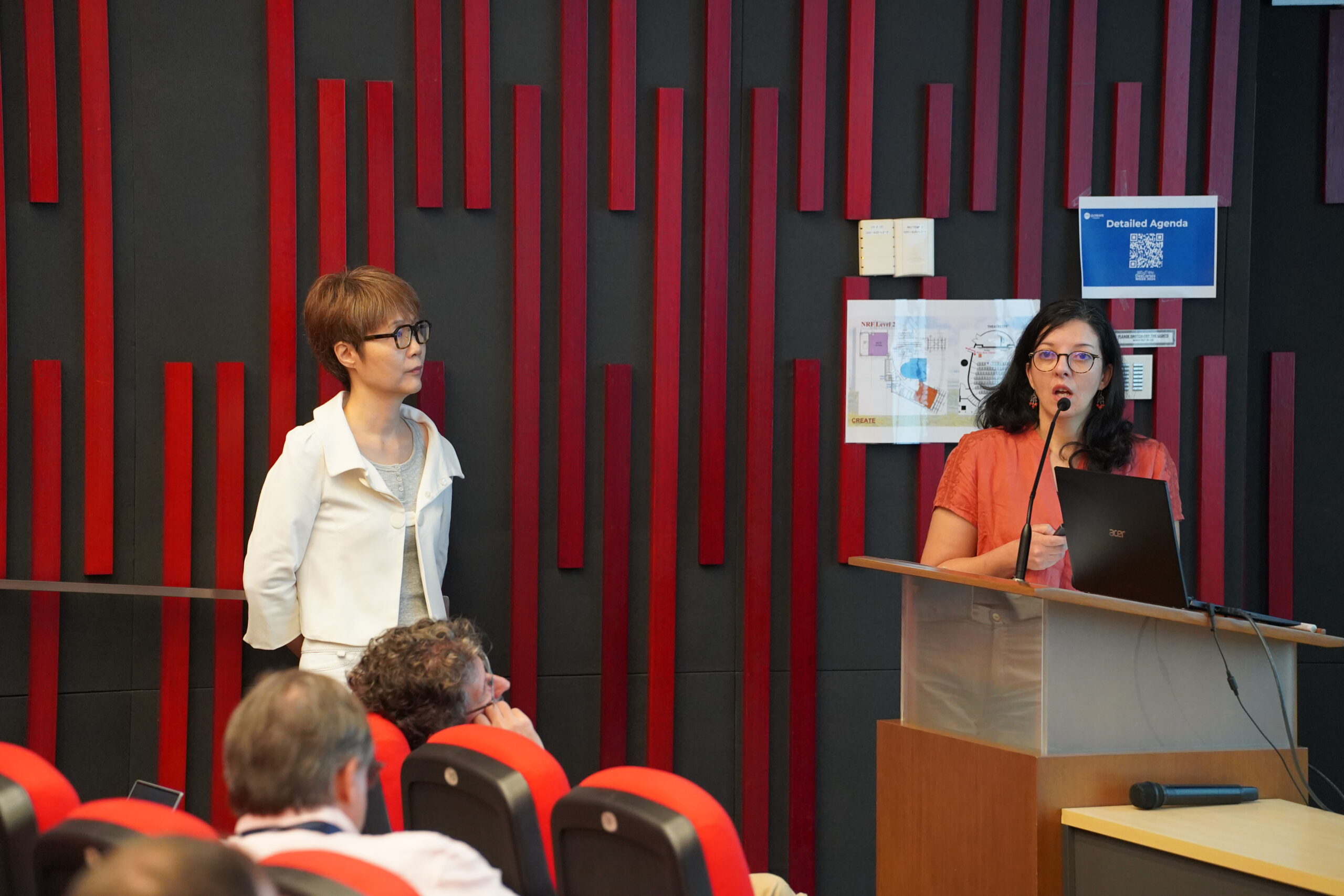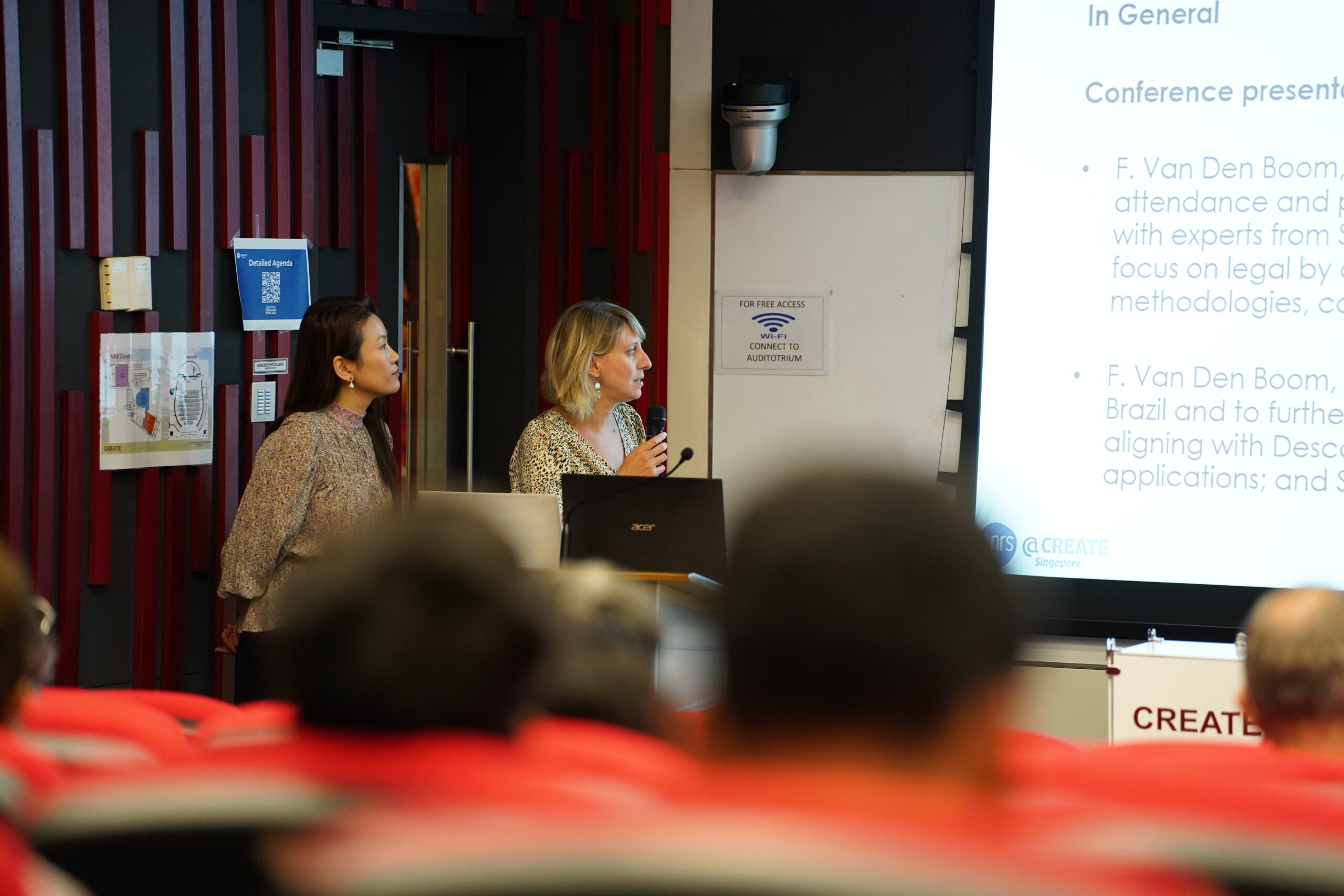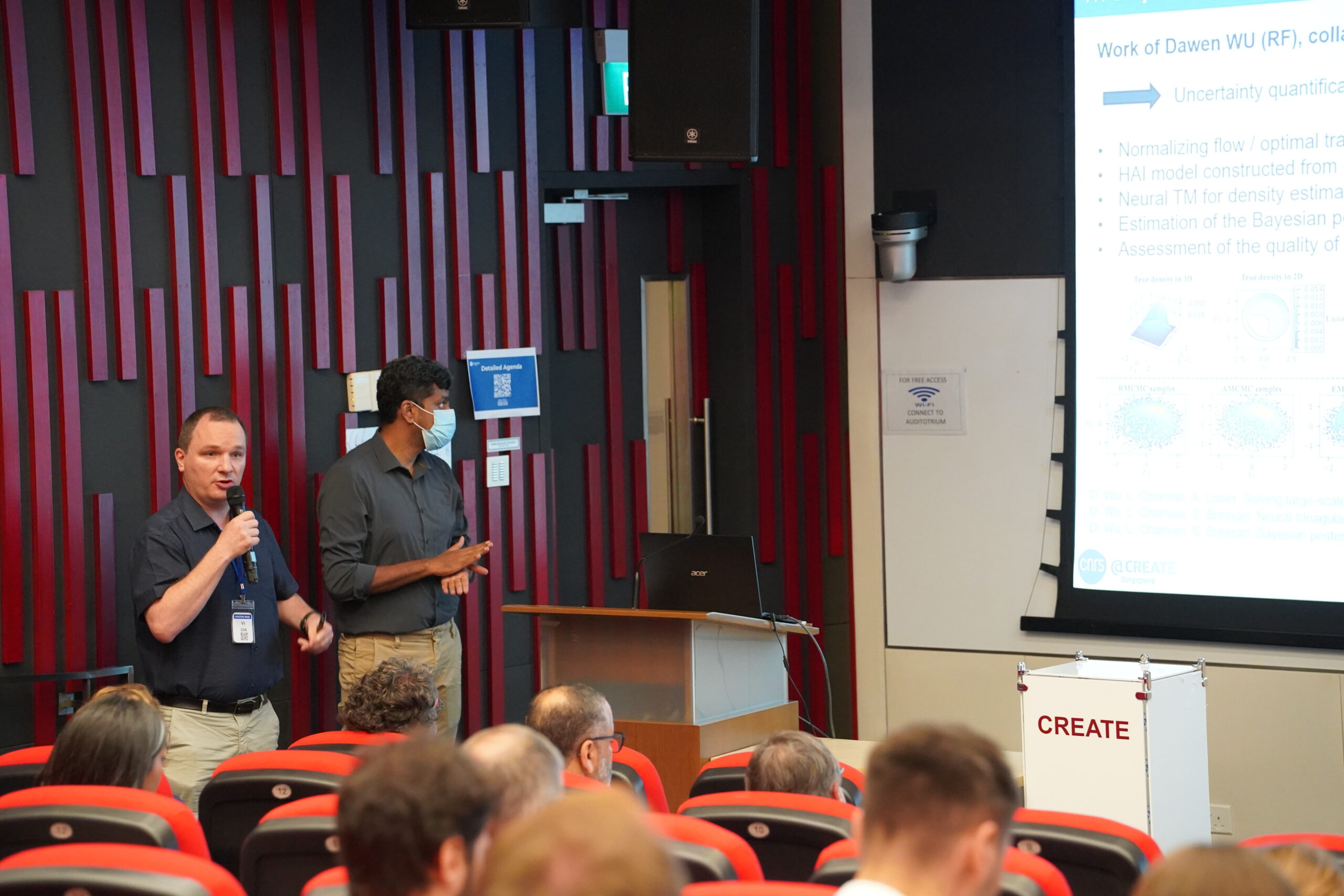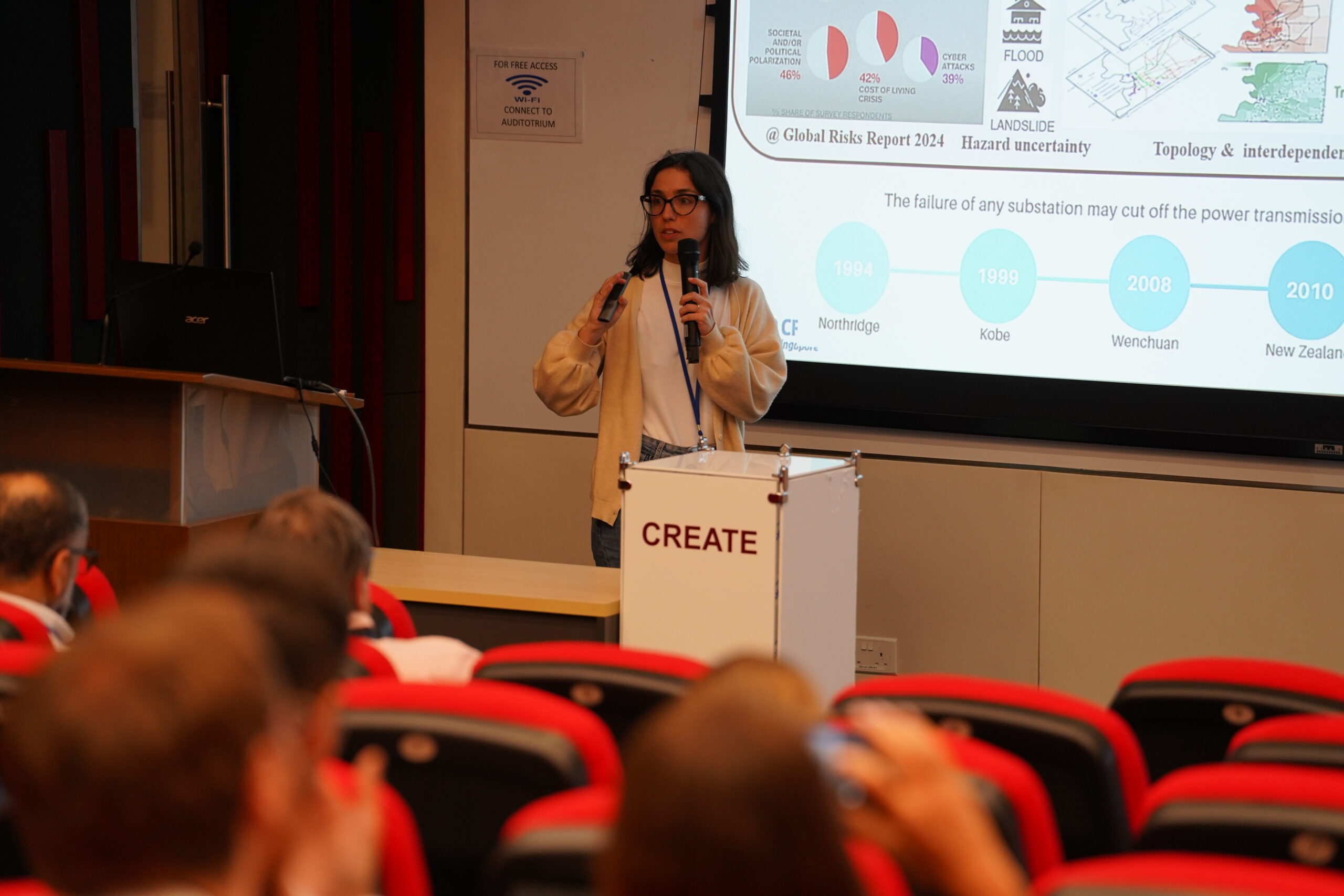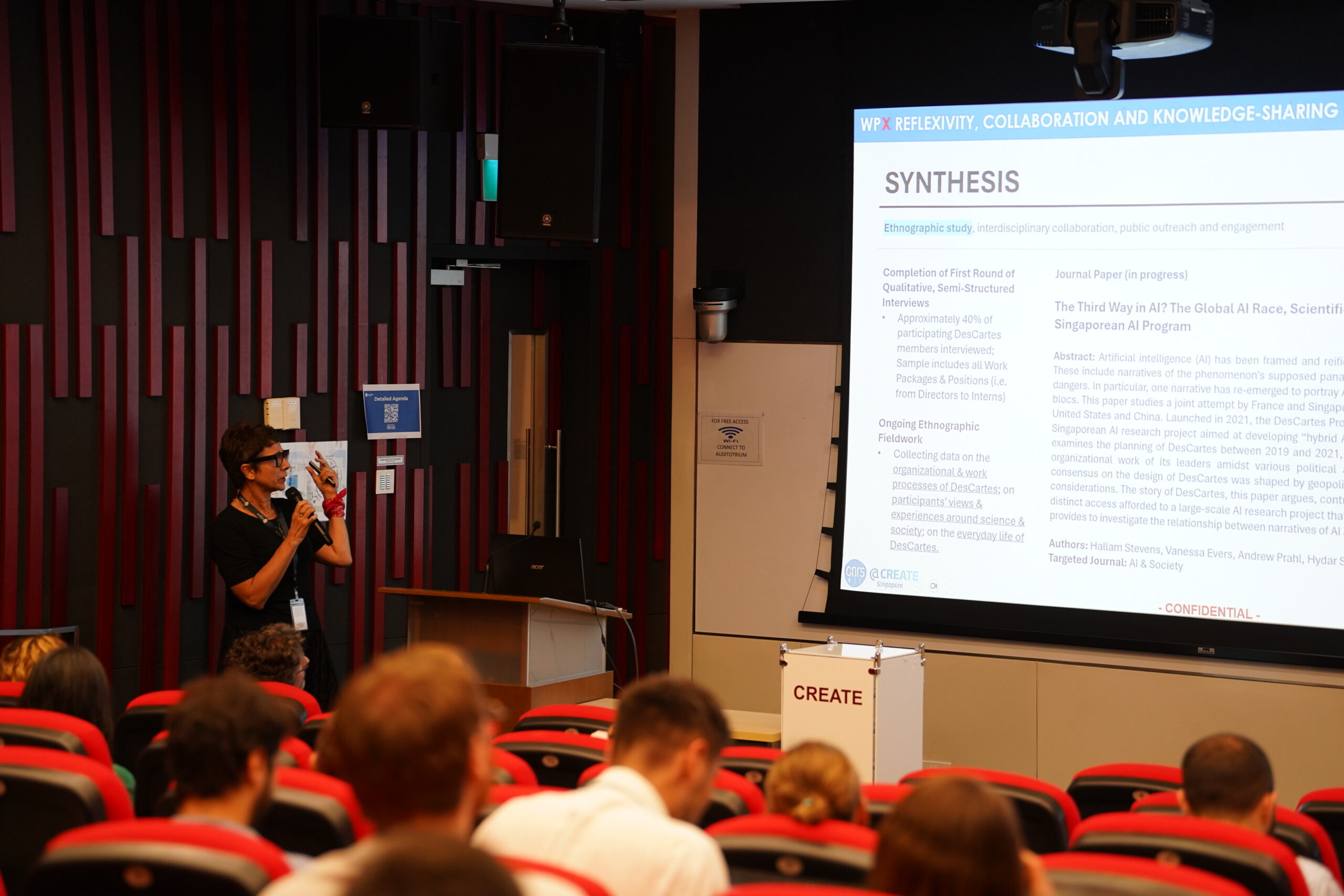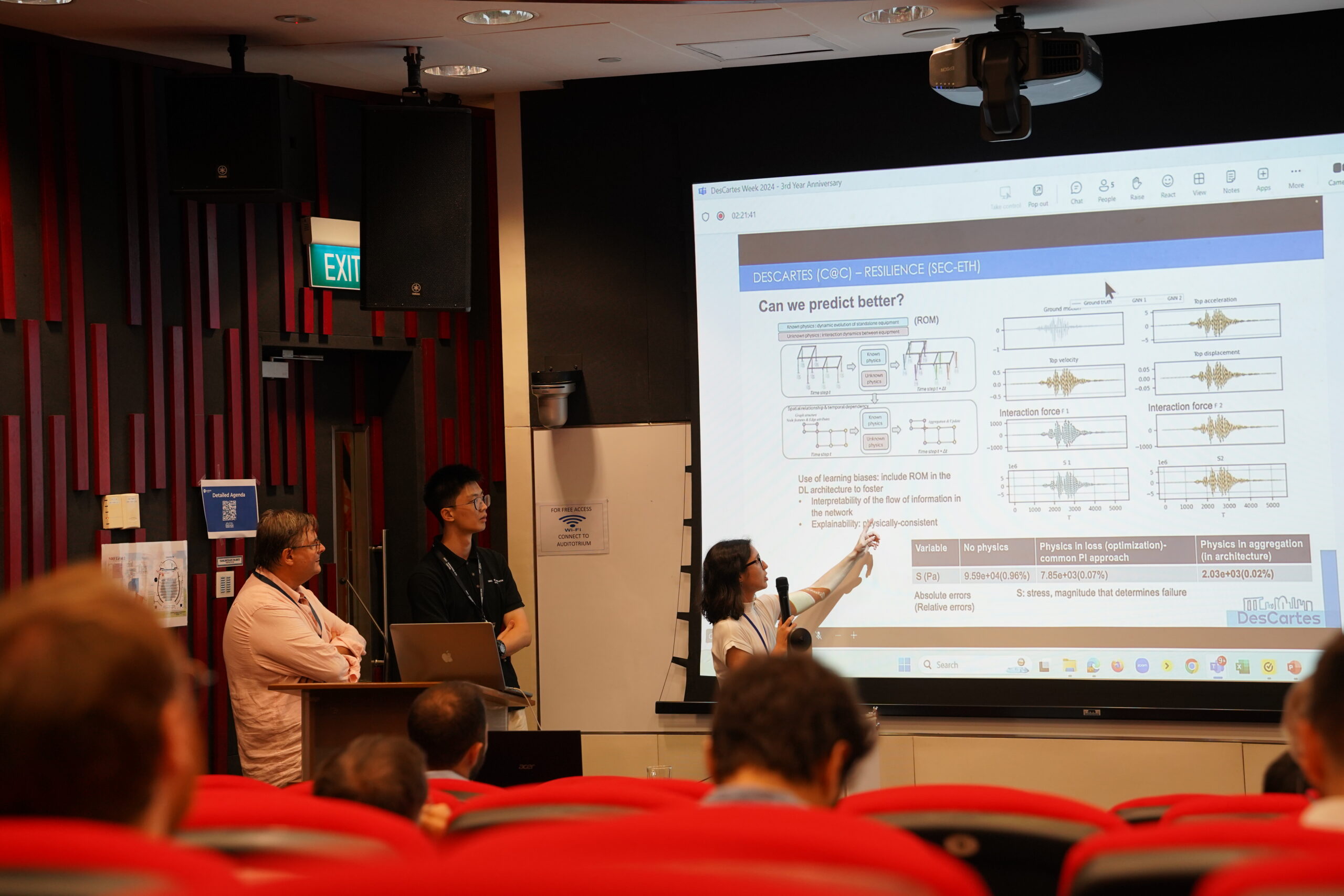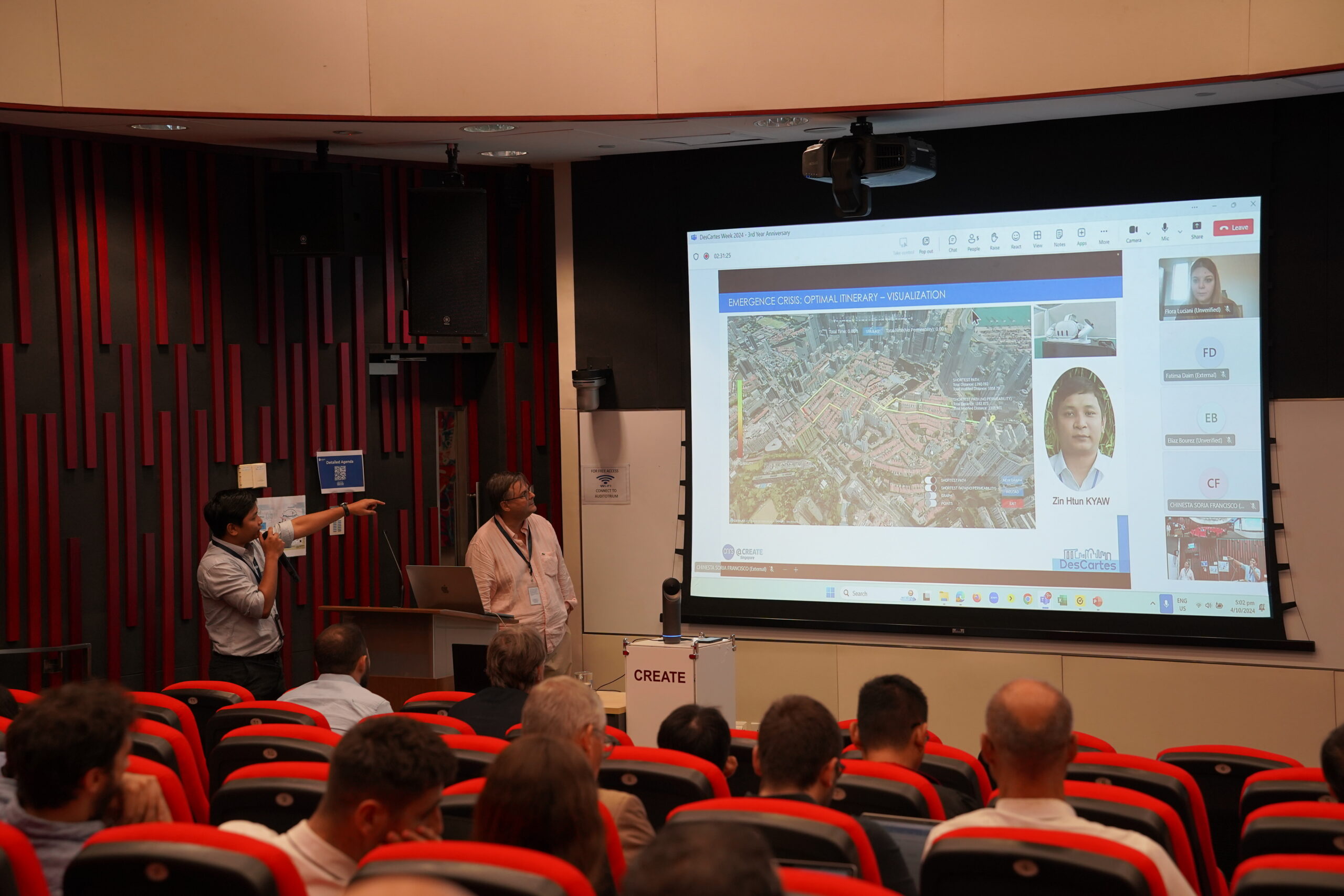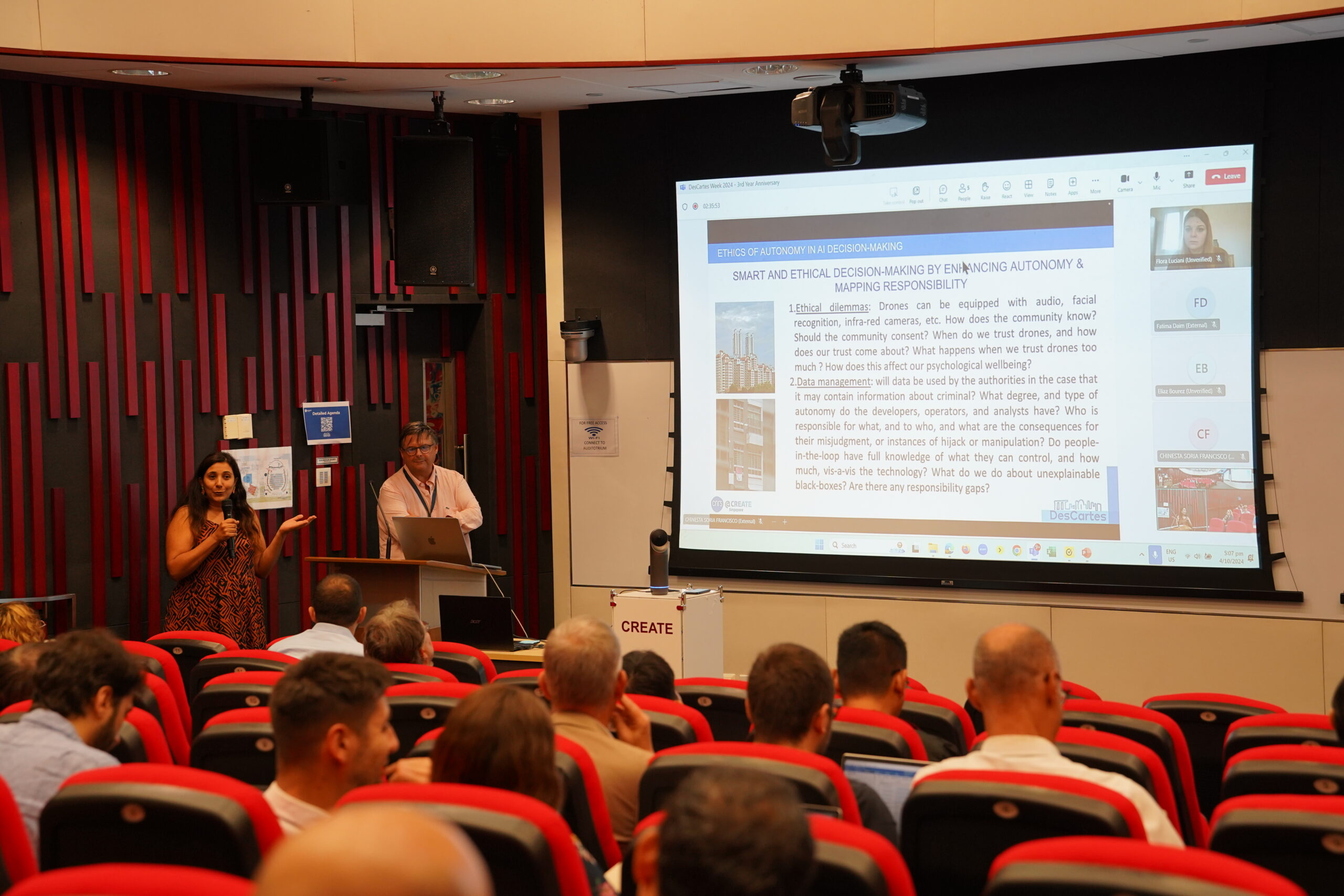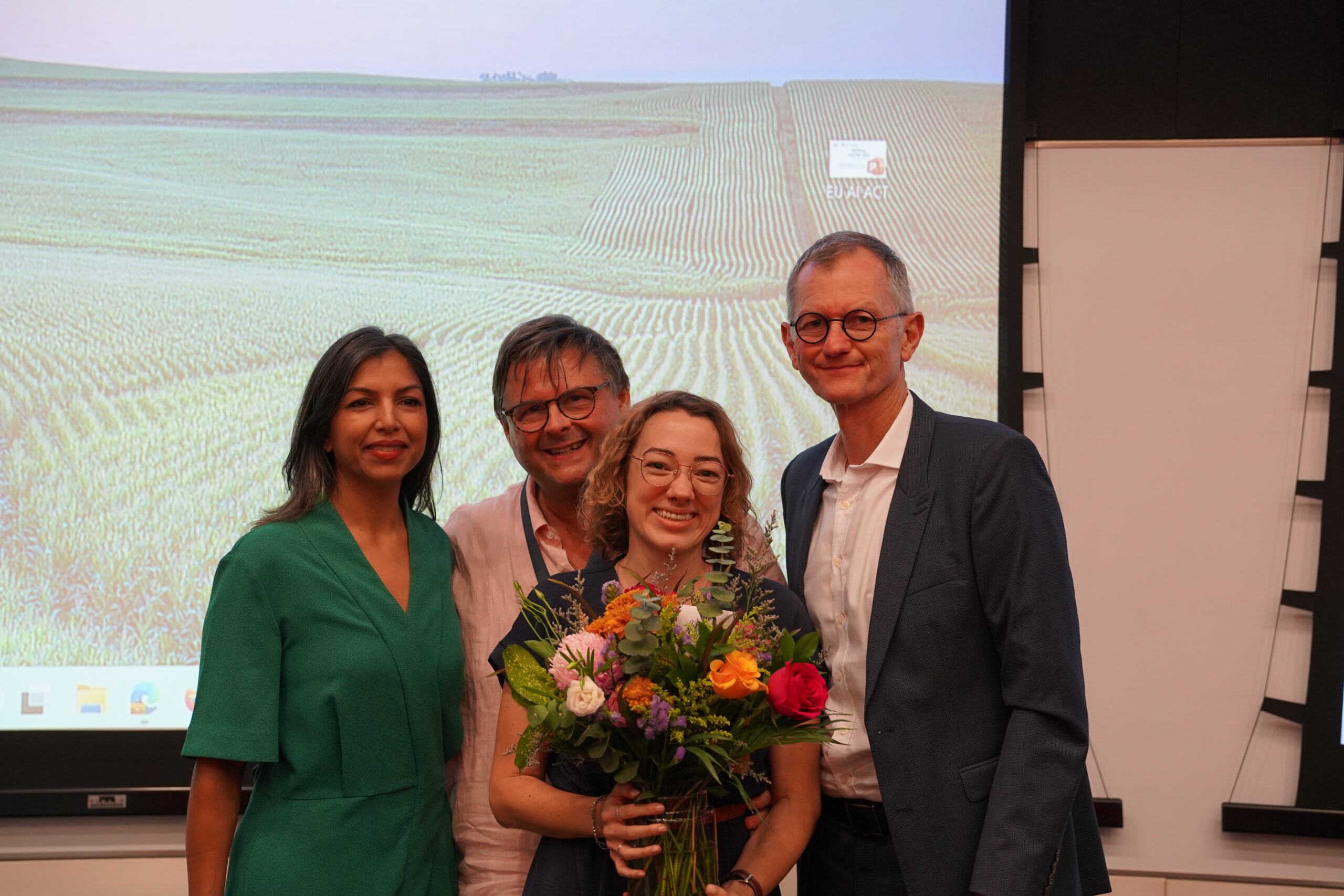DesCartes Week 2024

The DesCartes Week 2024, held from 30 September to 4 October, once again brought together young and senior researchers as well as industry professionals and academic partners to discuss Hybrid AI, smart cities, innovation and urban governance.
Hosted in Singapore, this year’s week titled “DesCartes for Innovative and Intelligent Urban Development” showcased the DesCartes Program’s commitment to responsible innovation and human-centric approaches in technology development.
Find below a summary of the key events and insights from this year’s program.
DAY 1: Smart Cities and Public Policies
The week kicked off with a welcome address from Chamira Lessigny, CNRS@CREATE’s Deputy Scientific Executive Director.
It was directly followed by a first roundtable on “Smart Cities by CREATE,” featuring two prominent experts from other CREATE entities: Juan Angel Acero (ex SEC and SMART, who recently joined CNRS@CREATE) and Tobias Massier (TUMCREATE). Discussions highlighted their previous and ongoing work around Singapore and the Smart city, more specifically the Cooling Singapore initiative, and several programs around energy efficiency for TUM.
These insights were complemented by a VIP talk from Prof. Charbel Farhat (Stanford University & ENSAM) in the early afternoon, on the evolution of numerical modeling and simulation, tracing its impact from military applications to its growing role in consumer markets.
Slide for more photos!
Slide for more photos!
Later in the afternoon, Dr. Charlotte Halpern from Sciences Po presented her research on public policy approaches to climate action, using Singapore as a case study. The session emphasized how governance models can be applied to manage the complexities of urban climate challenges.
The afternoon ended with an interactive demo session showcasing all the current DesCartes’ program’s demos: The Boid Corner Installation (WPX), DesCartes Augmented 3D-Printed Marina Bay Twin Model, DesCartes Hybrid Digital Twins and Desktop Visualization Application for Marina Bay Twin.
Finally, the day concluded with a very Singaporean teambuilding activity and dinner… prawning!
DAY 2: Humanities and Social Sciences in AI
The second day shifted focus to the human element in AI, exploring how societal perspectives shape technology in smart cities. Several speakers took the floor to lead discussions on whether citizens perceive AI as moral agents and how ethnographic fieldwork can provide deeper insights into AI’s role in society. These sessions underscored the importance of bridging social sciences and technology to create human-centered AI systems.
List of talks:
- Do citizens perceive AIs as prosocial and moral agents in Smart cities contexts? Bahia Guellai (WP6)
- Behind & Underneath the Making of “AI”: Ethnographic Fieldwork in Descartes, Hydar Saharudin (WPX)
- Trust in AI? Melvin Chen (WP7)
- ABC DesCartes, A collaborative, inter- trans-disciplinary project on shared terminology, Ishmam Ahmed (WPX)
Slide for more photos!
Slide for more photos!
In the afternoon two workshops continued to highlight the role of Social Sciences in DesCartes. The first one, led by Jennifer Ang and Bahia Guellai (WP6), further explored the ethical dimensions of AI in smart cities. This session contrasted technology-driven approaches with human-centric methodologies, underscoring the need to prioritize ethical AI development in urban environments.
The second one, led by Amélie Favreau and Freyja Van Den Boom (WP7) focused on responsible hybrid AI regulation, particularly looking at ethical values and their influence on technical and legal regulation.
DAY 3: Drone Regulation and Reinforcement Learning
On Wednesday morning, Jessica Brightman from the American Federal Aviation Administration (FAA) delivered a VIP talk on drone regulation and the FAA’s evolving approach to managing Unmanned Aircraft Systems (UAS). Brightman’s insights into current drone regulations and the development of UAS Traffic Management (UTM) provided a timely reflection on the challenges and opportunities of integrating drones into smart cities.
Slide for more photos!
Slide for more photos!
The day continued with a mini-hackathon of 3 hours on Reinforcement Learning, led by Ludovic Chamoin and Sharath Ram Kumar (WP8). Participants, divided into several groups, applied AI to control problems, fostering creativity and problem-solving in a practical, hands-on environment.
To conclude the day, WP7 (with the help of WP1) hosted their second workshop of the week, focusing on Responsible Hybrid AI Data Licensing. Following several presentations from different PIs -Jean-Marc Deltorn, Melanie Dulong, and Blaise Genest- Freyja Van Den Boom introduced an engaging serious game. Participants, divided into groups once again, were tasked with envisioning and discussing how to prepare for an unpredictable future, collaboratively designing protections for (or against!) hypothetical AI innovations.
DAY 4: Student Research Presentations
Thursday was dedicated to research presentations, with PhD students and their advisors delivering concise yet engaging talks on their research areas. This “Thesis in 180 Seconds” session allowed for a rapid-fire showcase of scientific progresses, with the audience gaining insights into the latest DesCartes research while keeping things challenging and interactive (chocolates were awarded to the speakers respecting their allocated time!).
The day also featured a demonstration of the DesCartes Builder, presented by Eduardo de Conto (WPX). The development of this tool/platform, showcased here through the design of a hybrid twin for the remote sensing use case, illustrated the ongoing technological advancements of the program.
DAY 5: Celebrating Three Years of DesCartes
The final day marked the three-year anniversary of the DesCartes Program, celebrating its progress and future goals. In the morning, presentations from each WPs (including general updates and technical focus) summarized their achievements and strategic outlooks for the next phases of the program.
Slide for more photos!
Slide for more photos!
In the afternoon, a second presentation, introduced by Dominique Baillargeat – Scientific Executive Director of CNRS@CREATE – orchestrated by Francisco Chinesta – DesCartes’ Program Director, included a video flashback from 2023, a review of DesCartes’ key performance indicators (KPIs) and past events, and finally the presentation of the latest scientific milestones as well as use-cases highlights and progresses.
